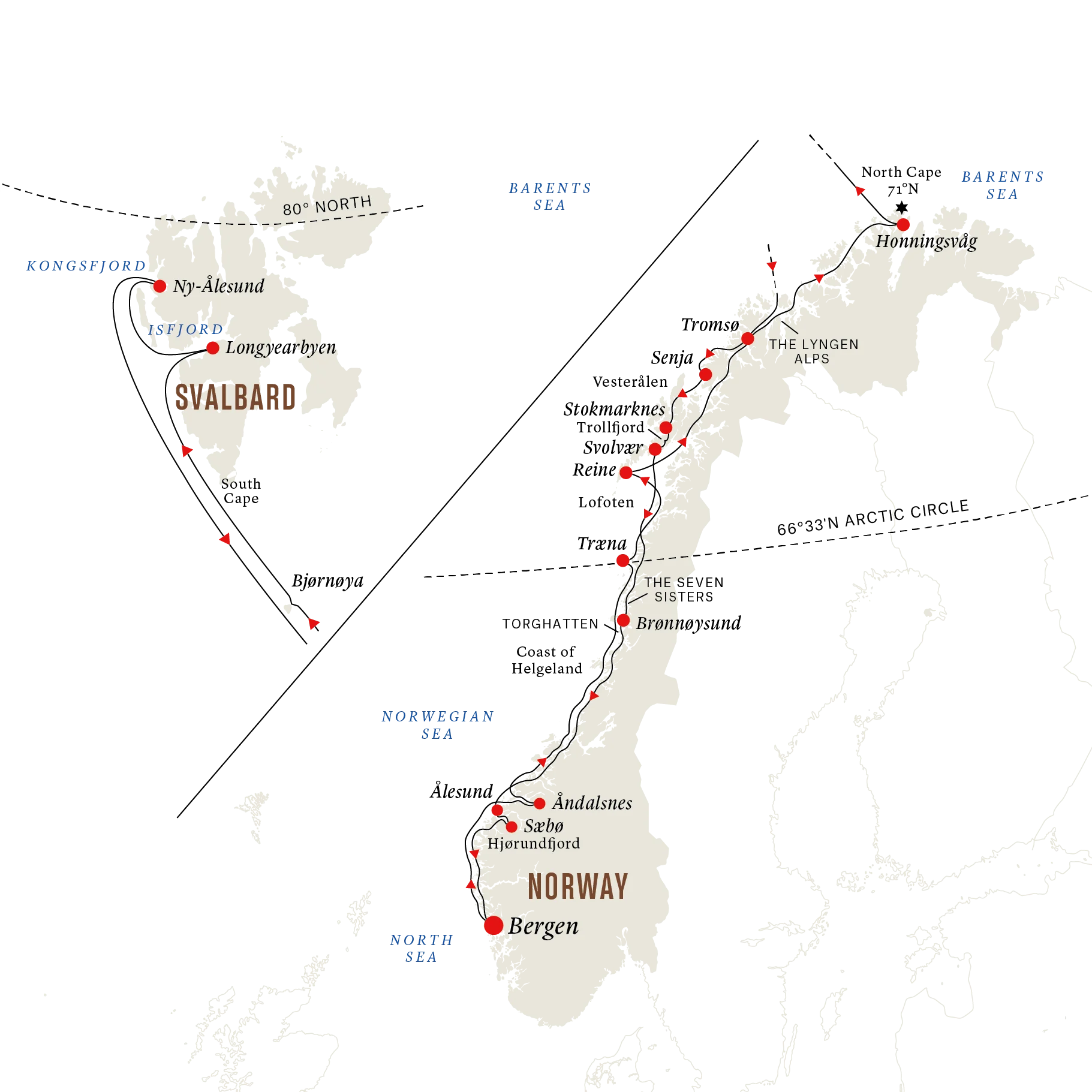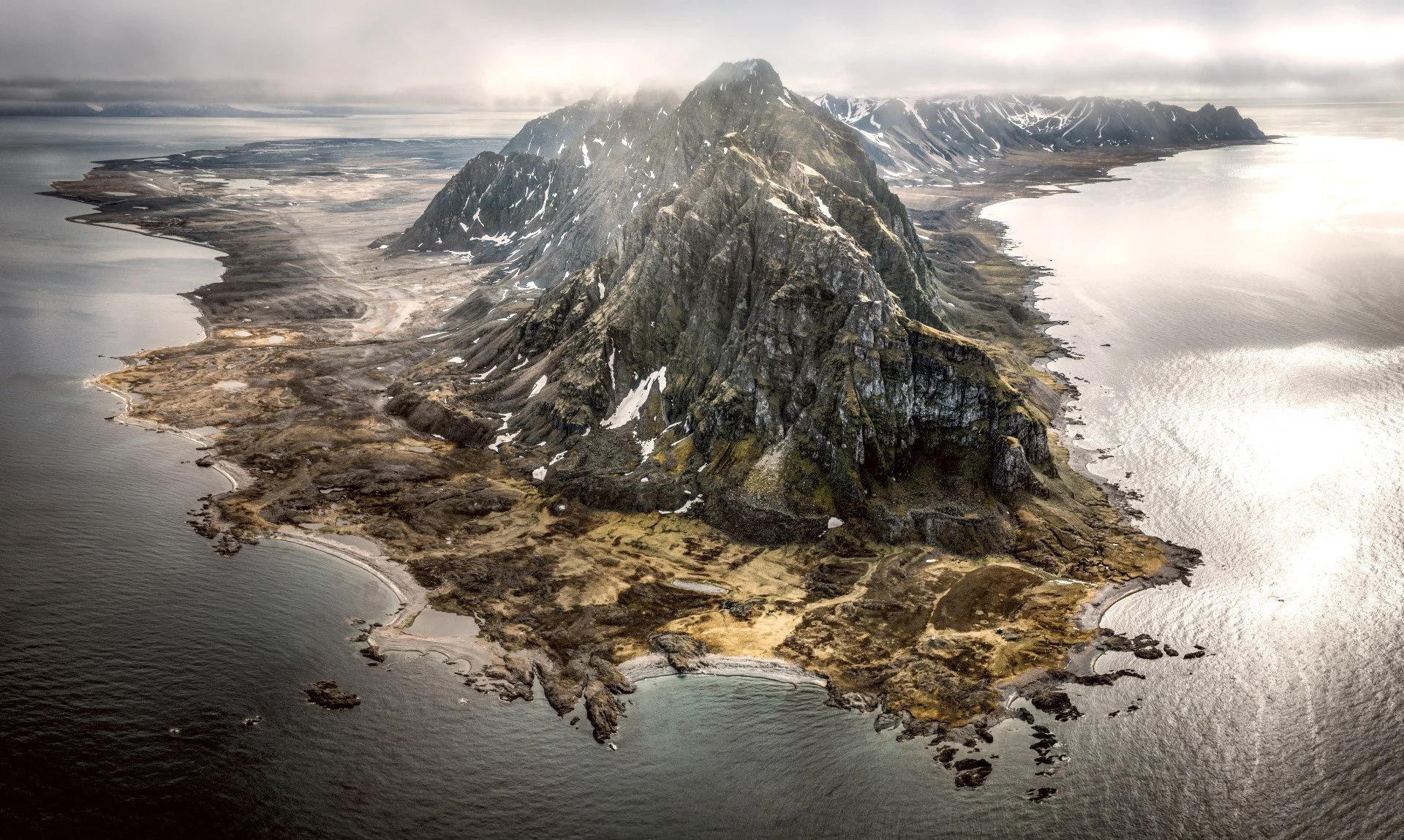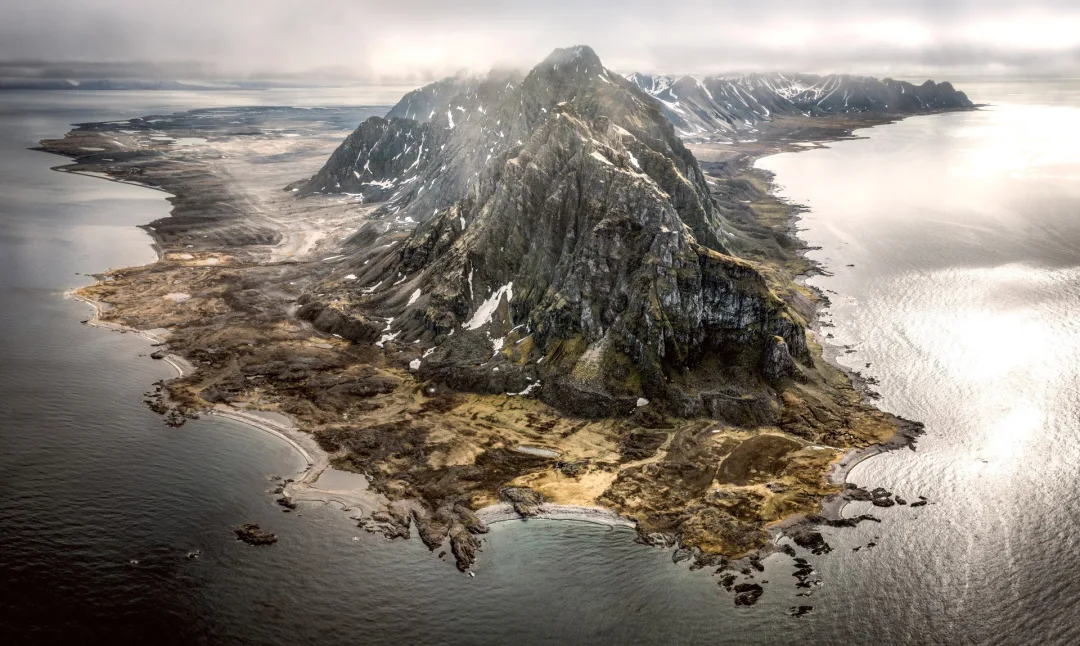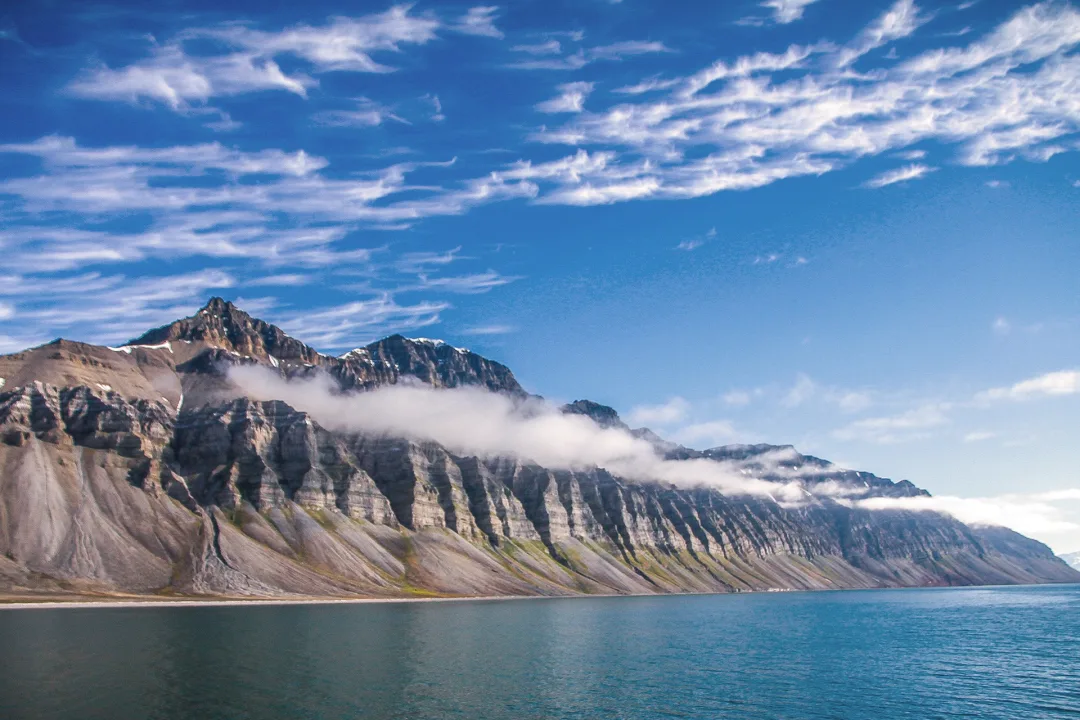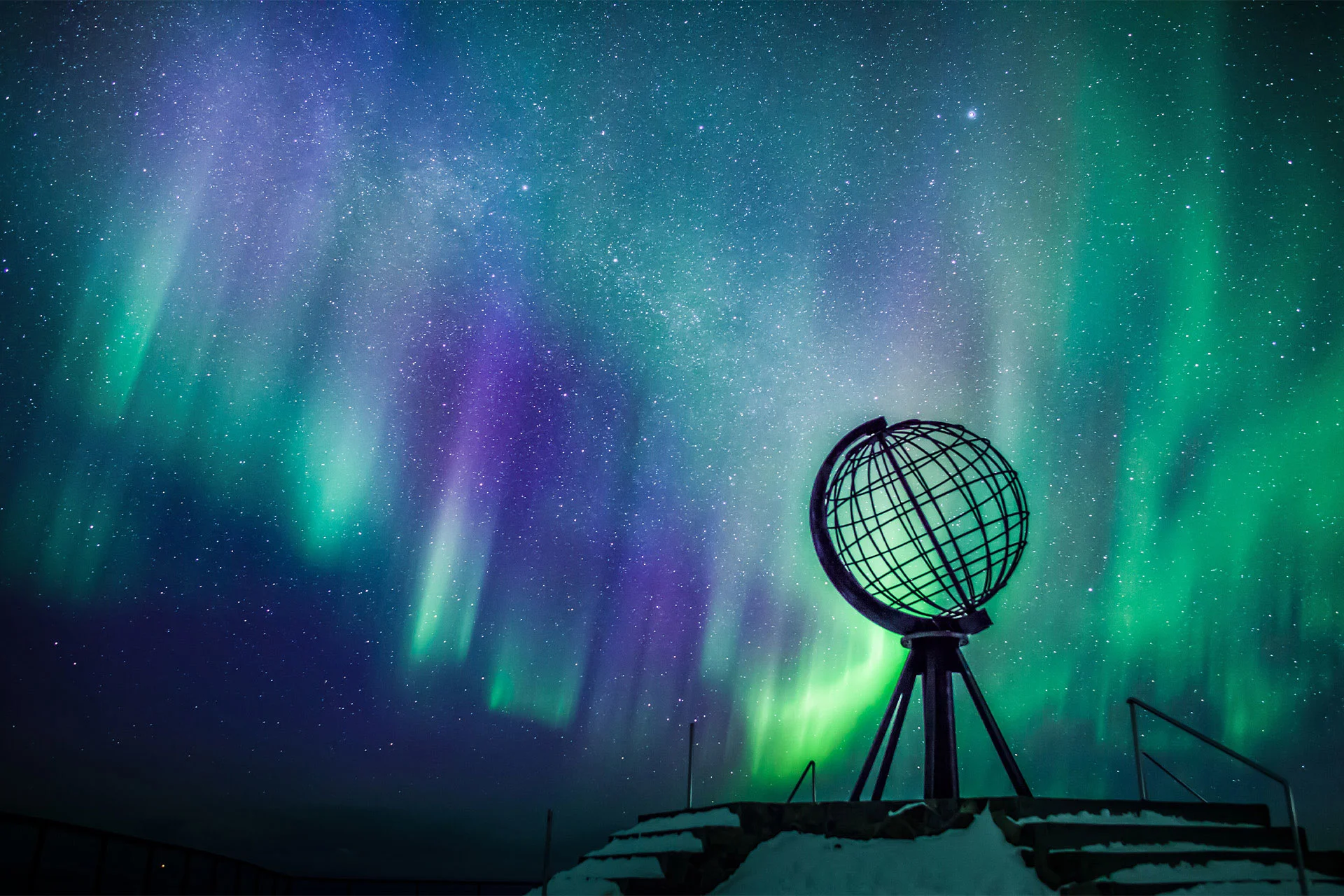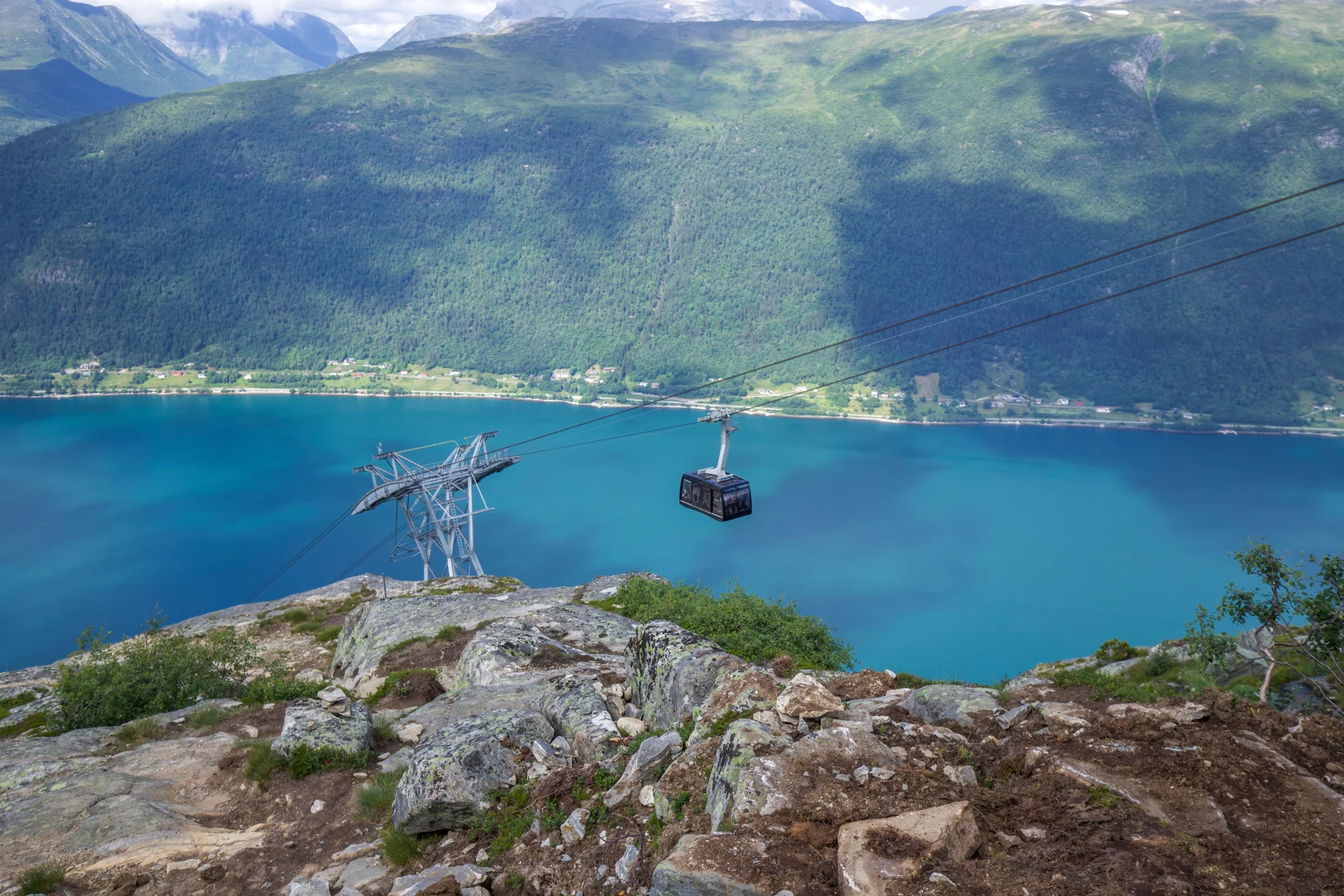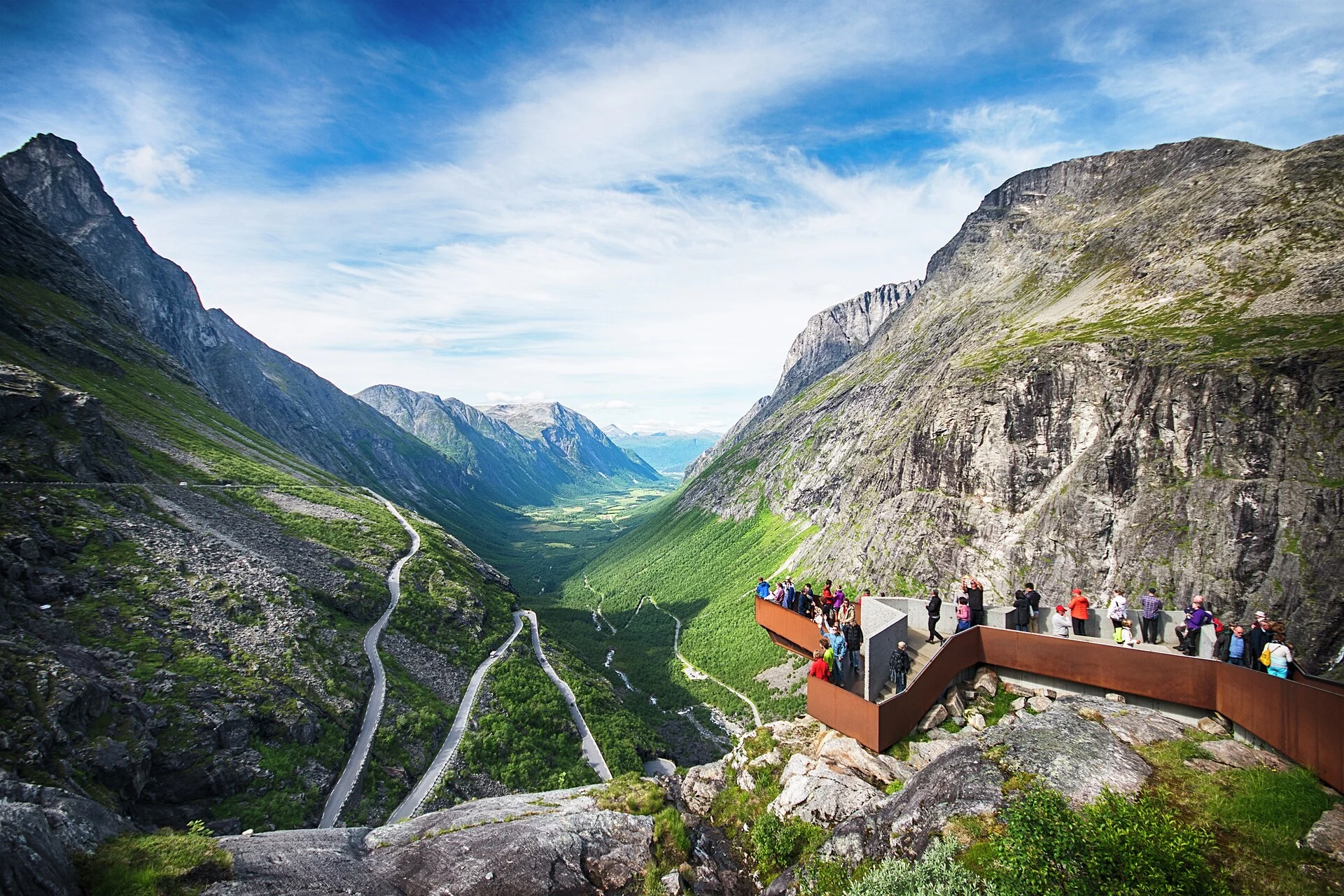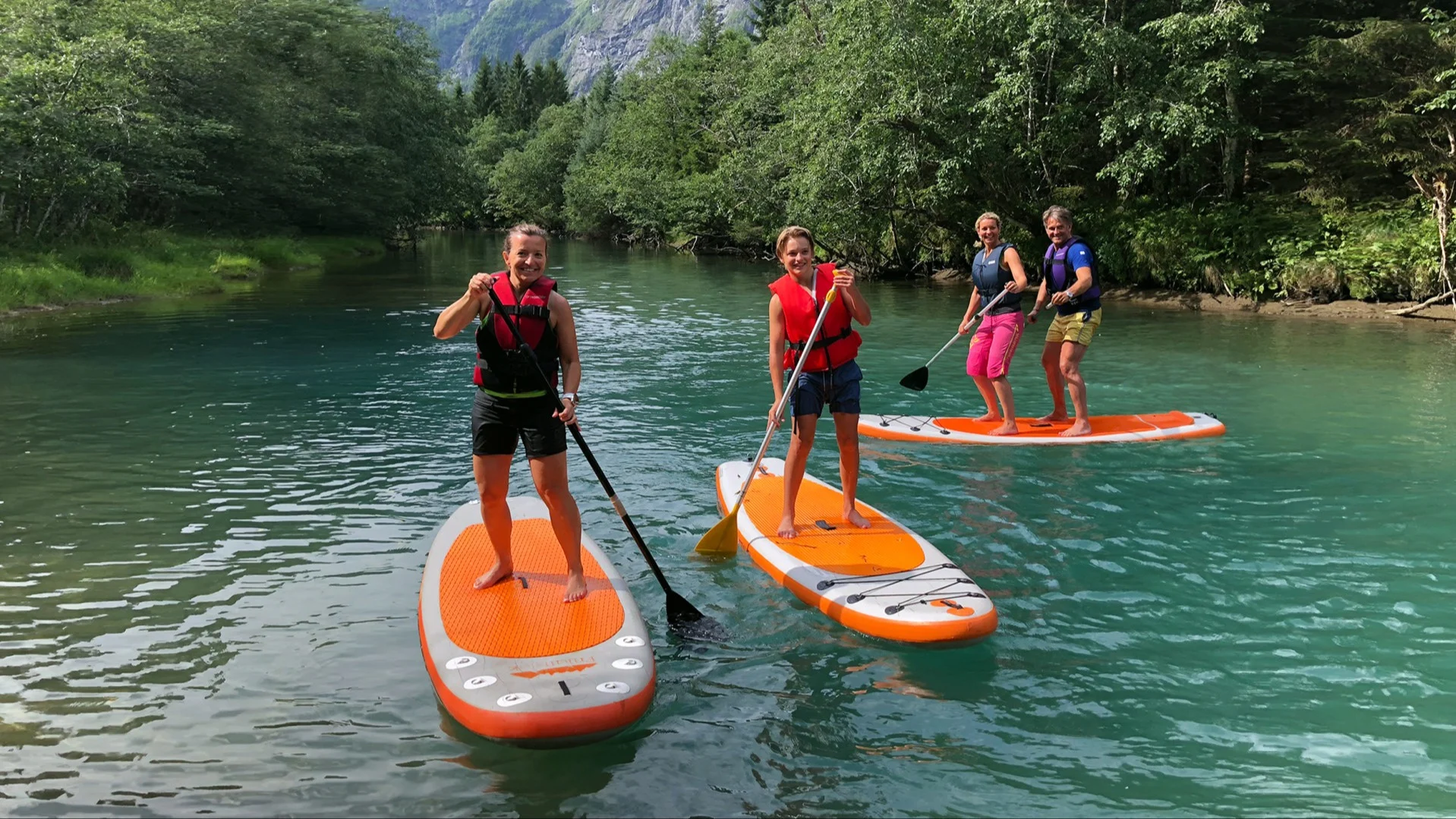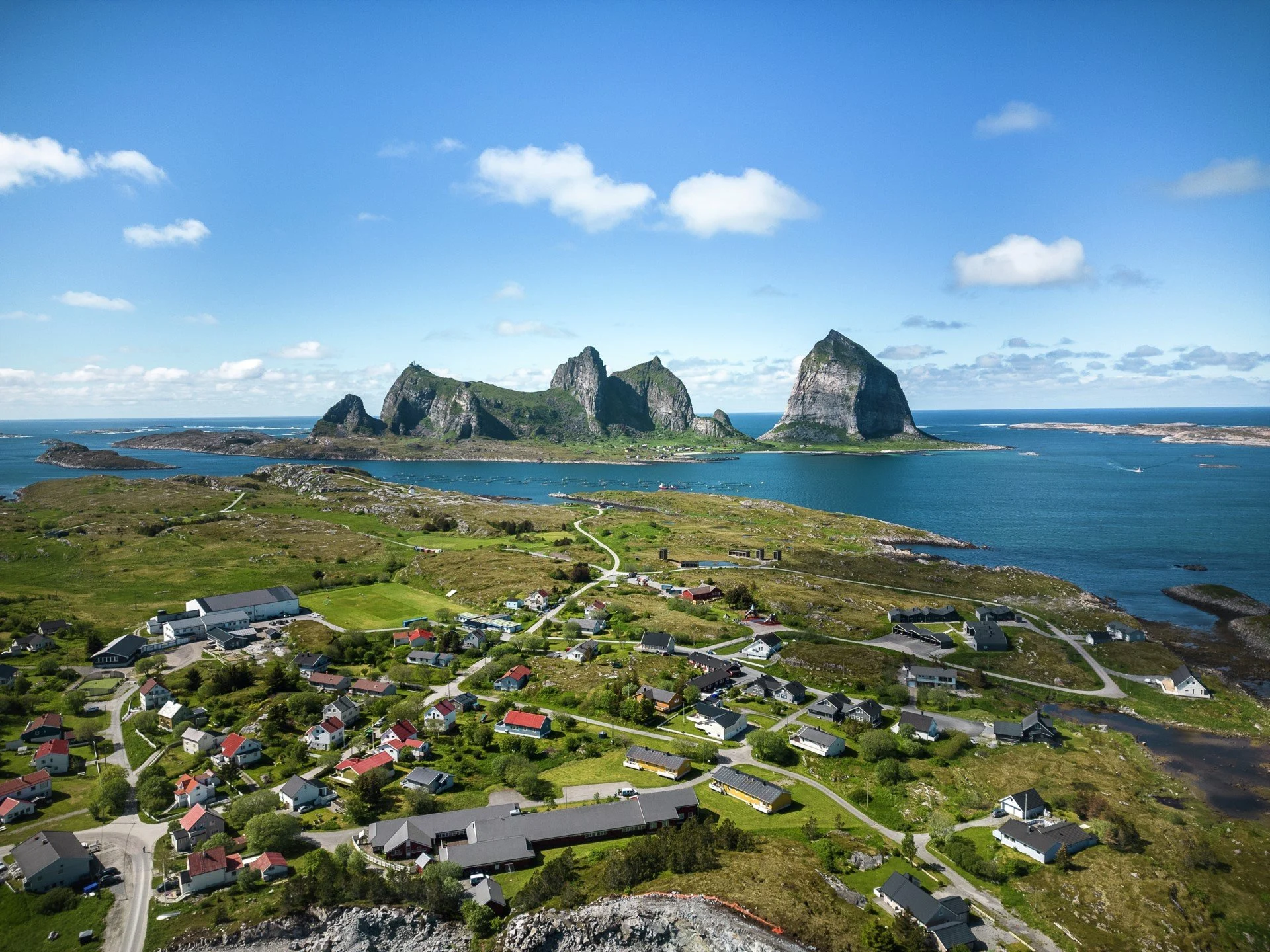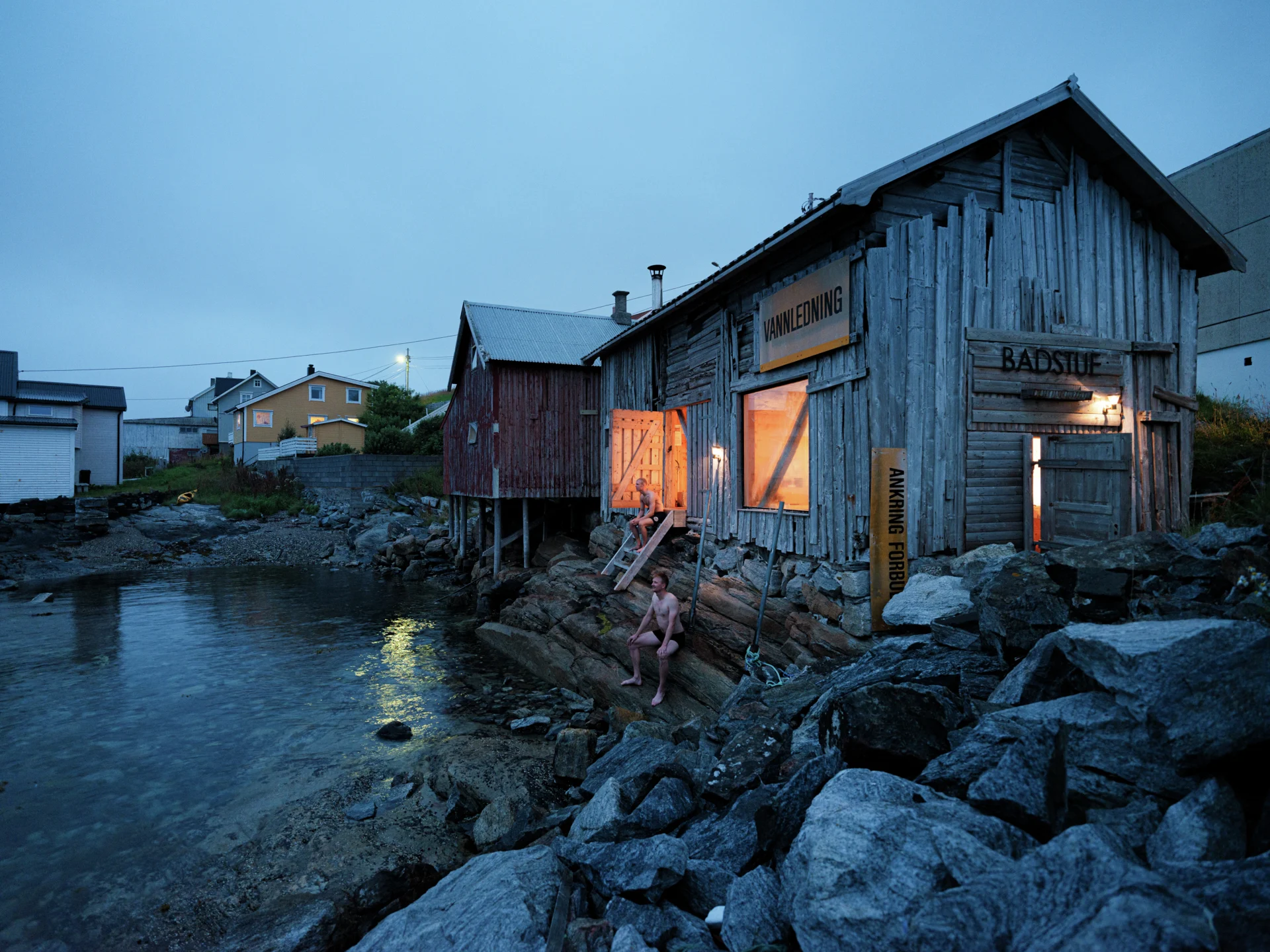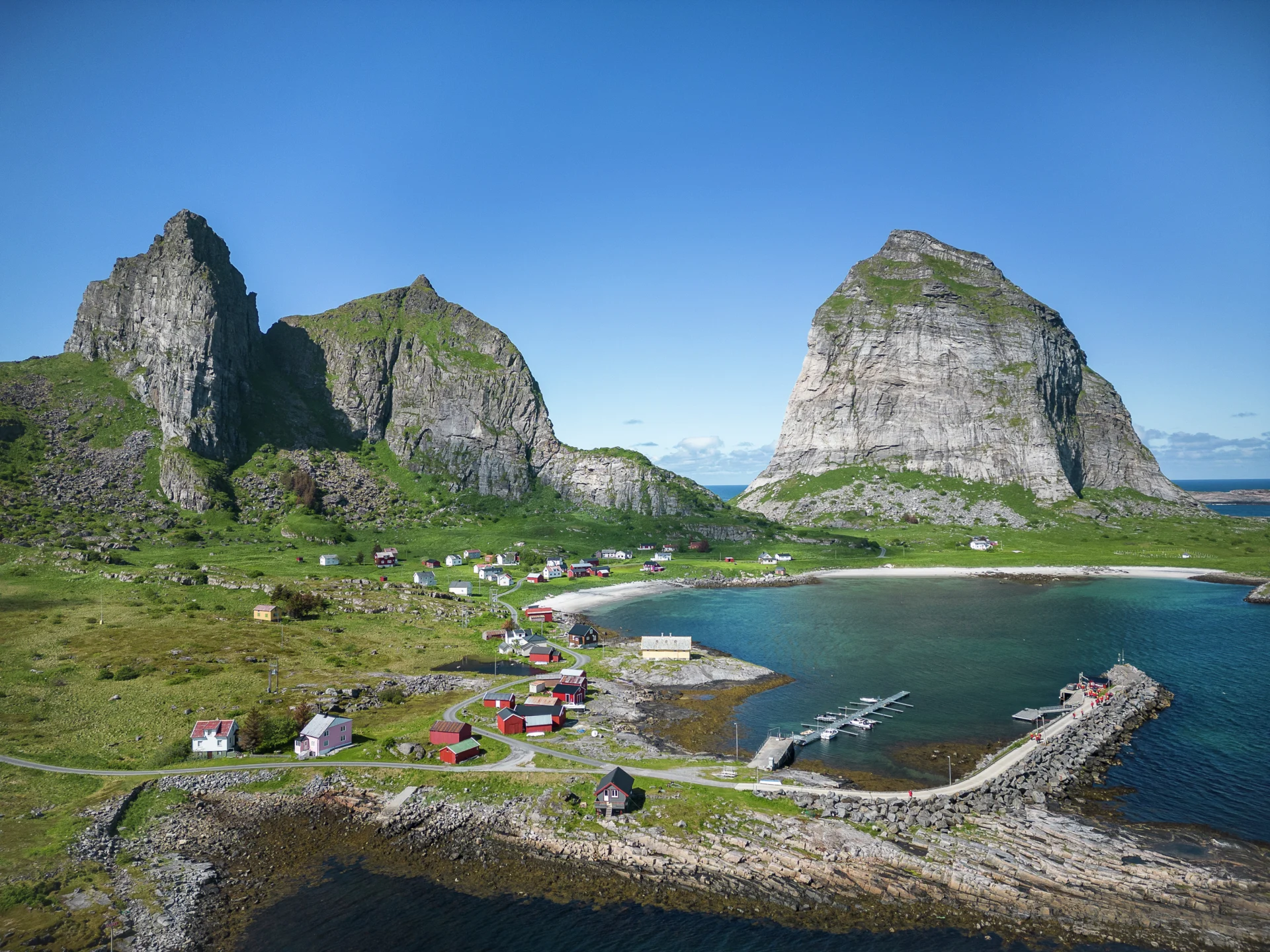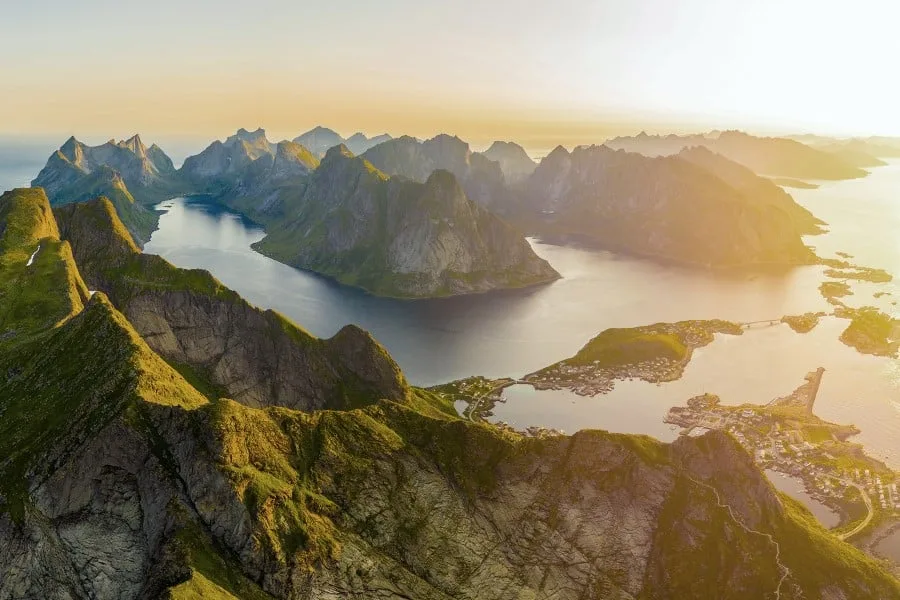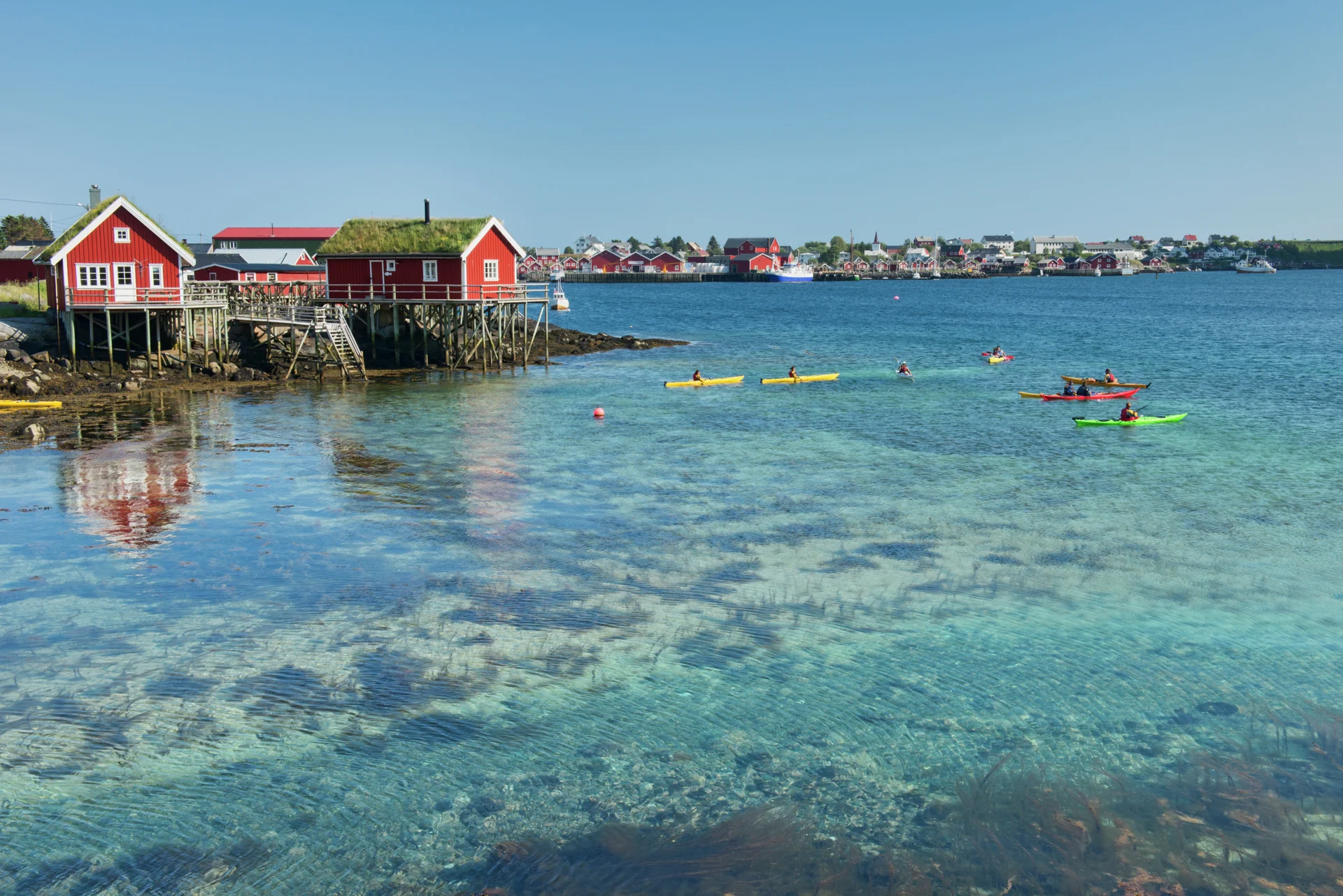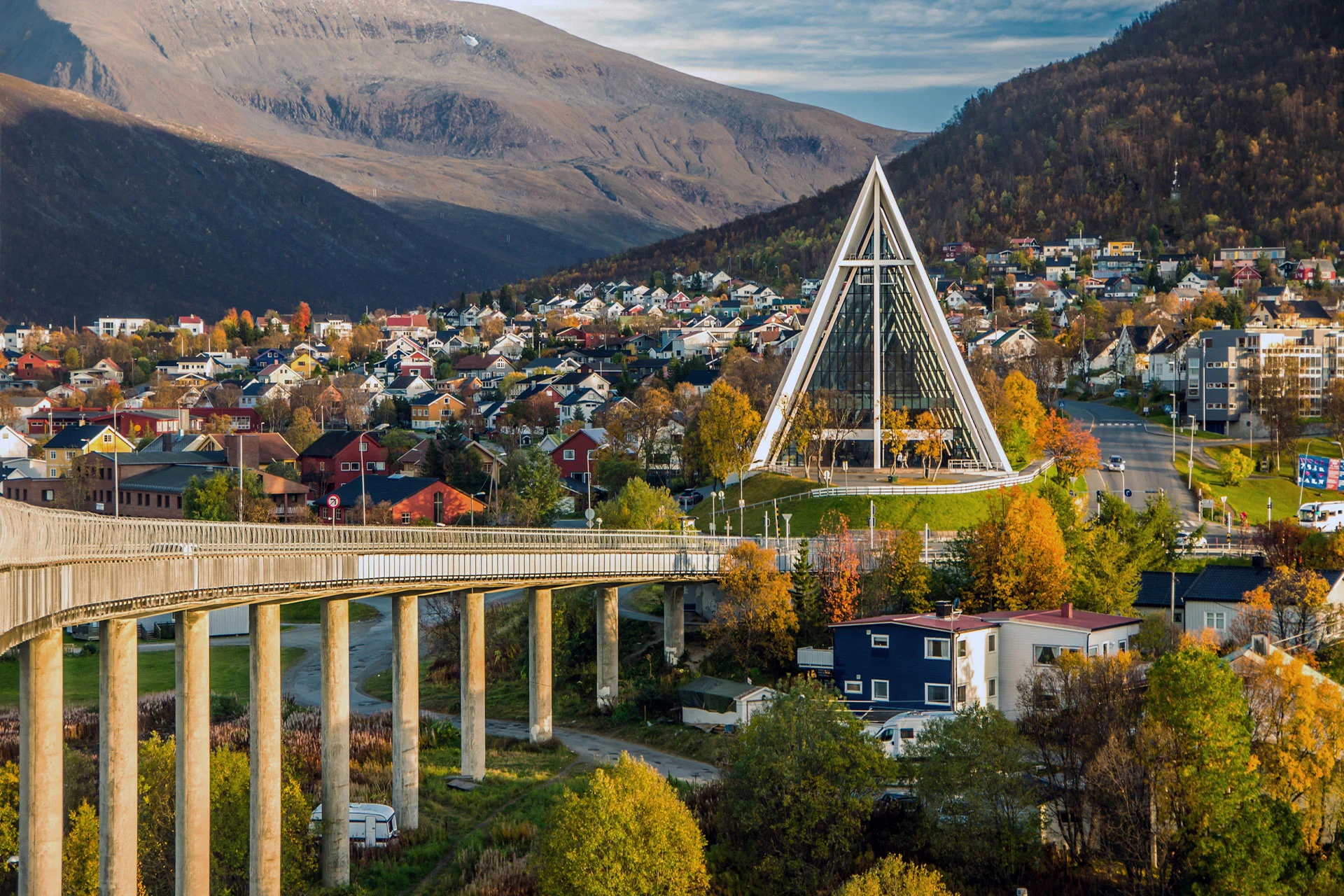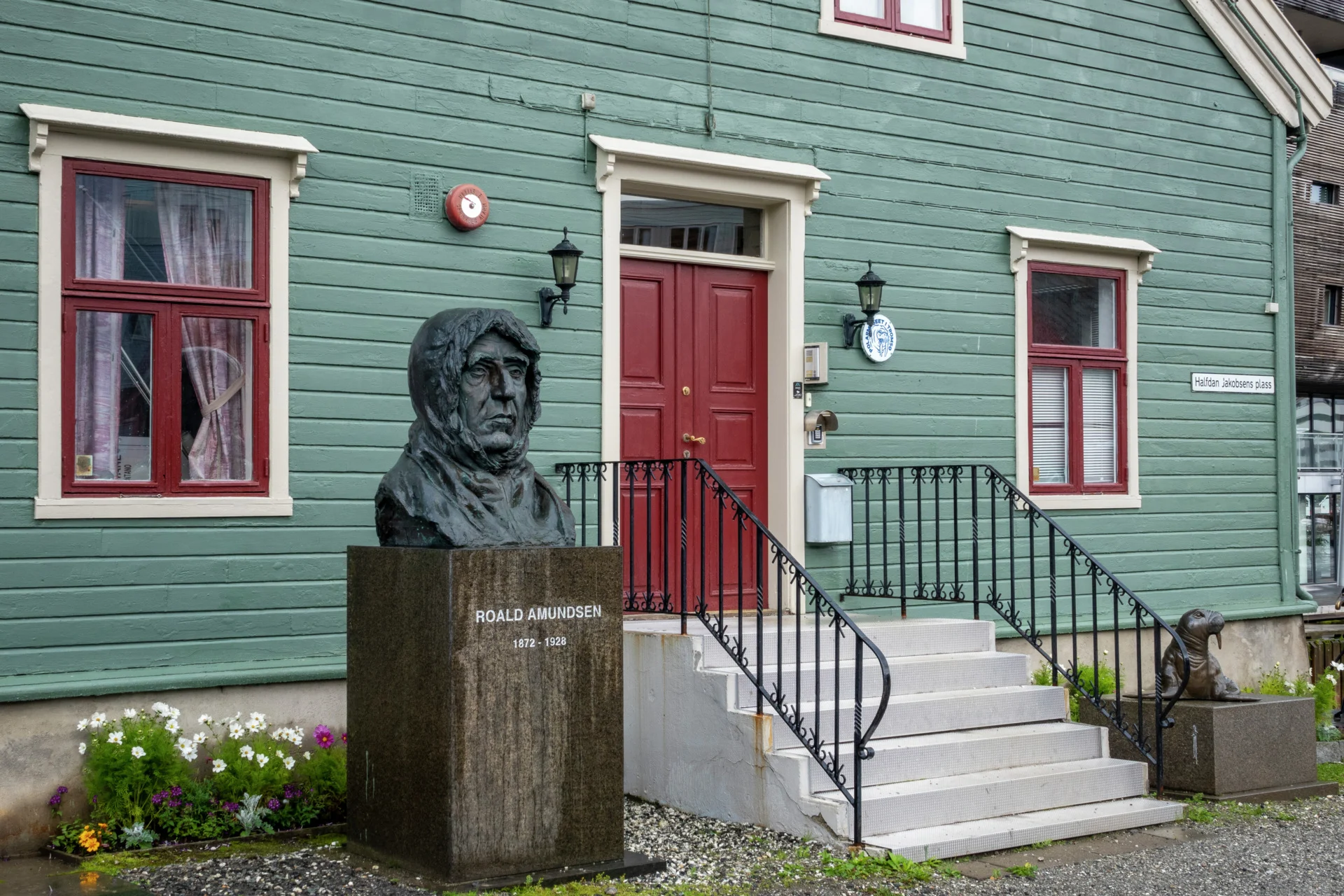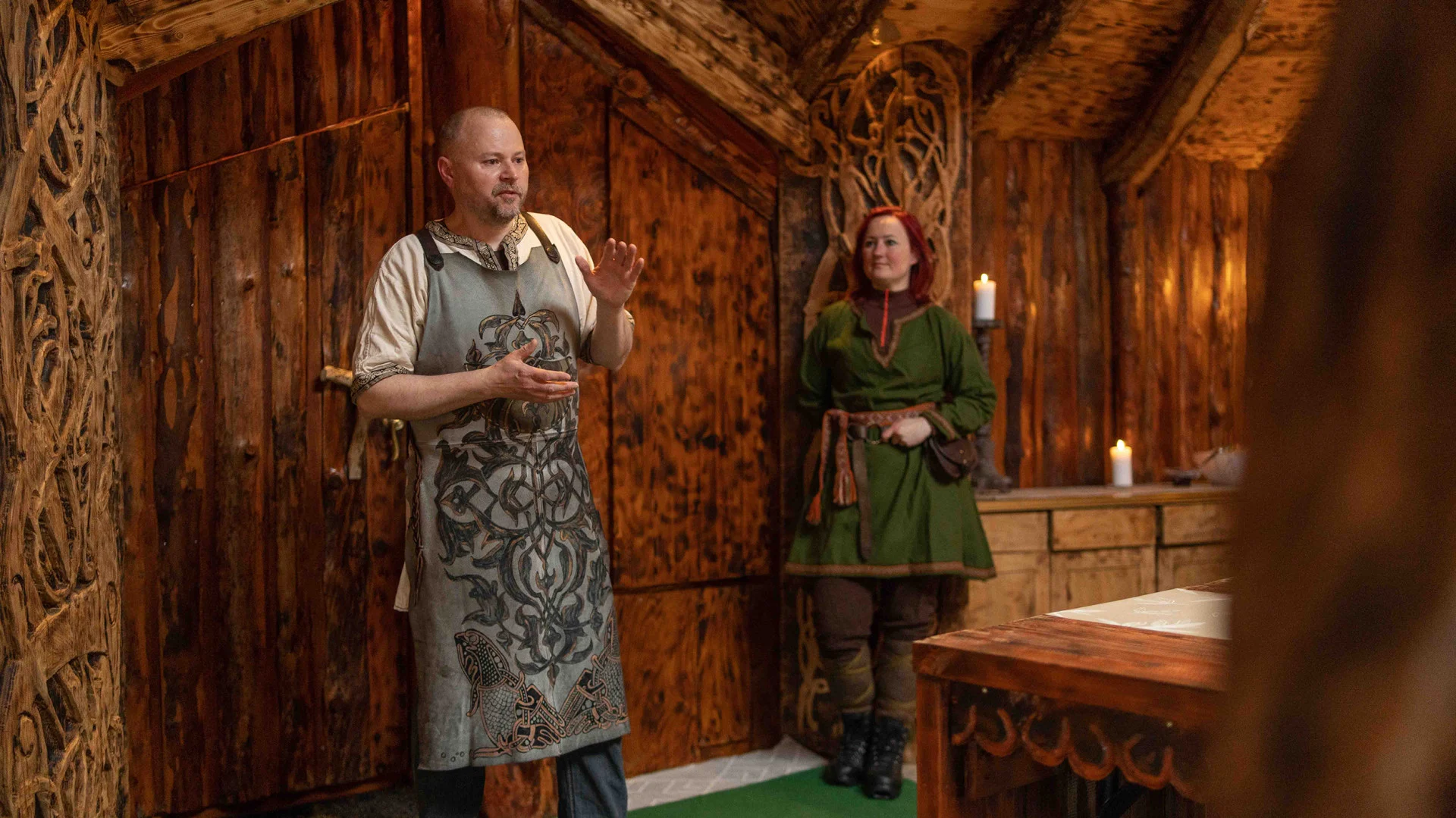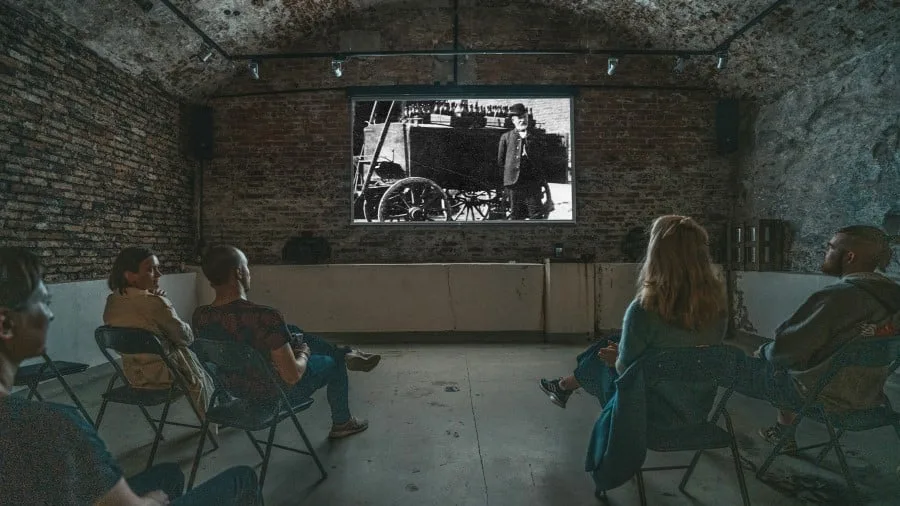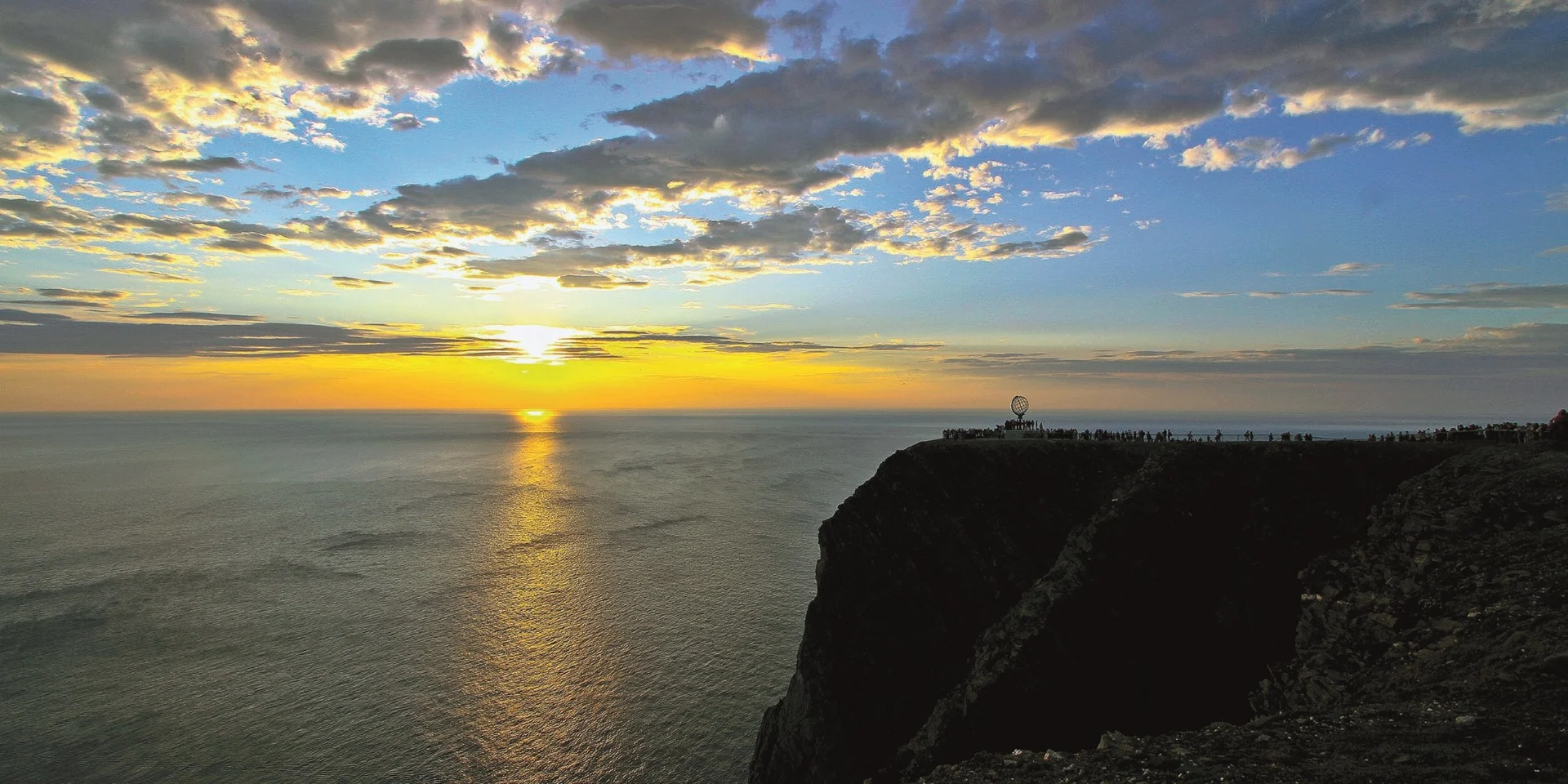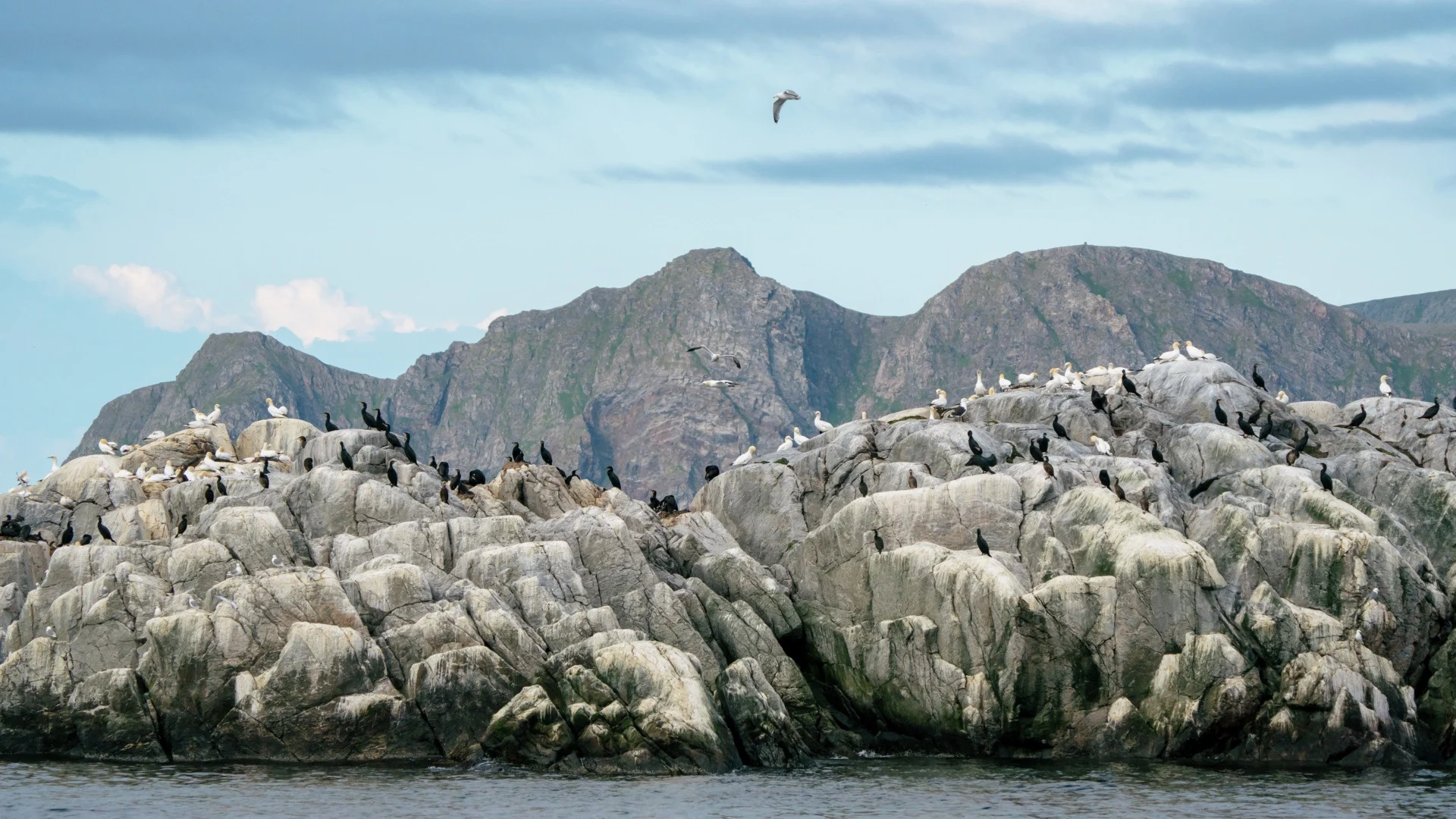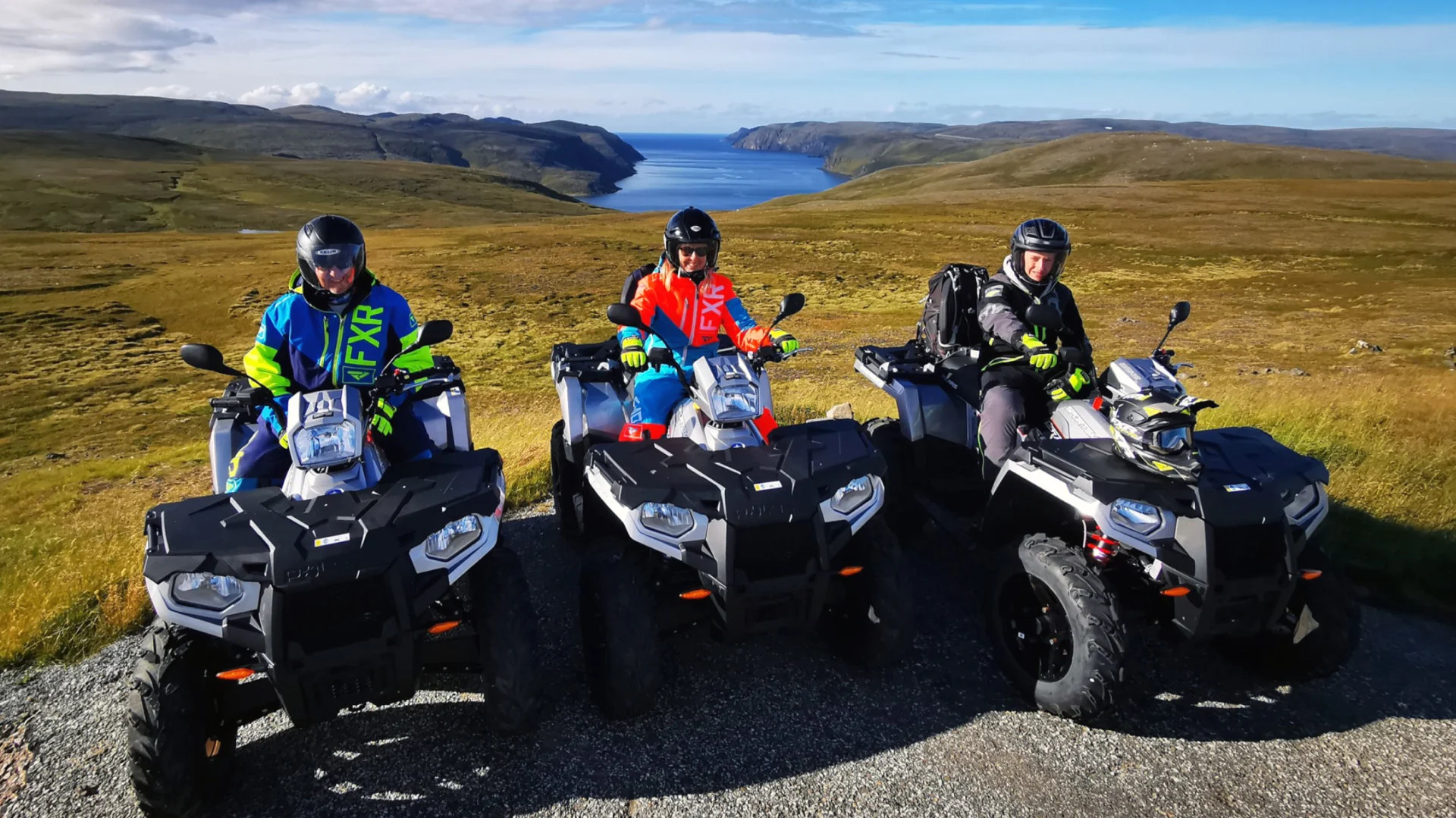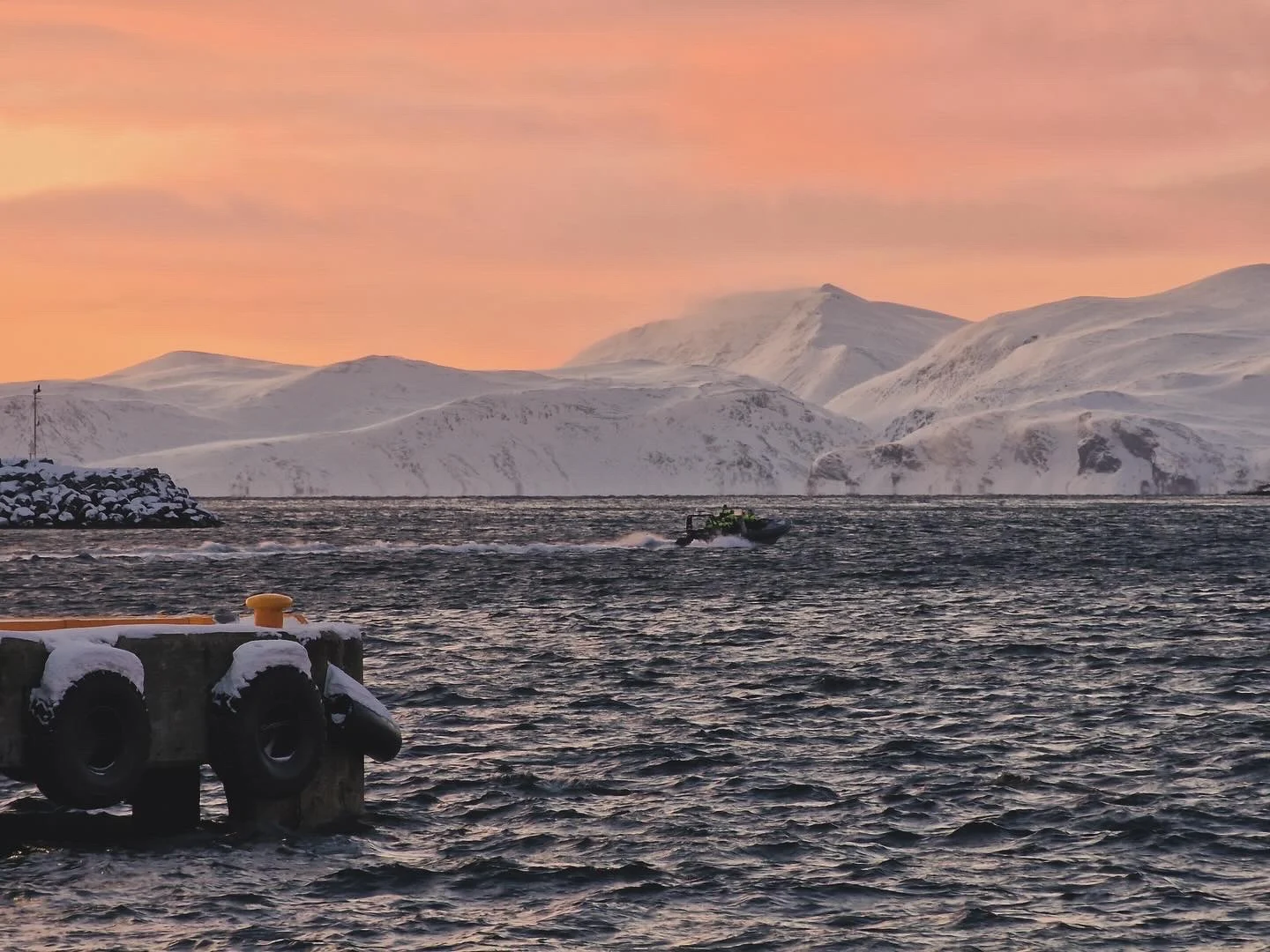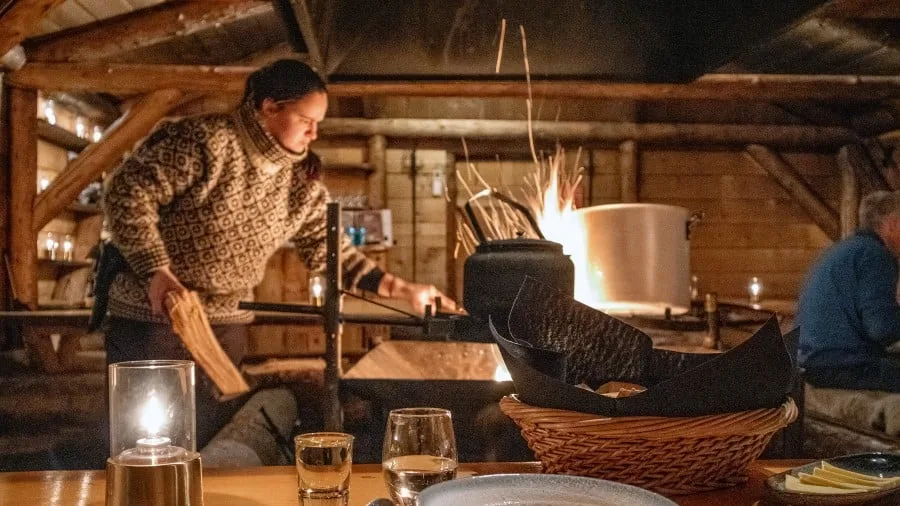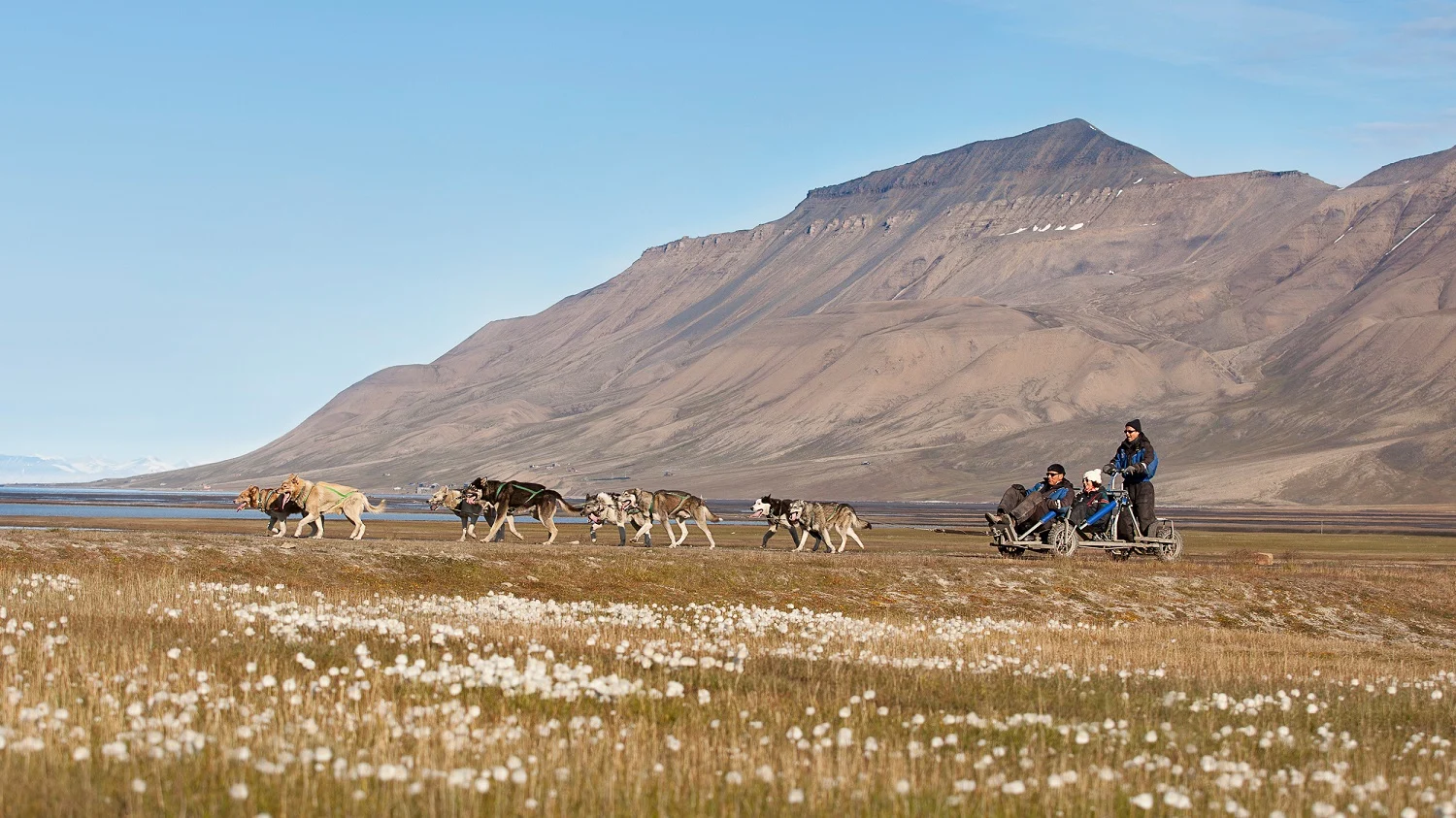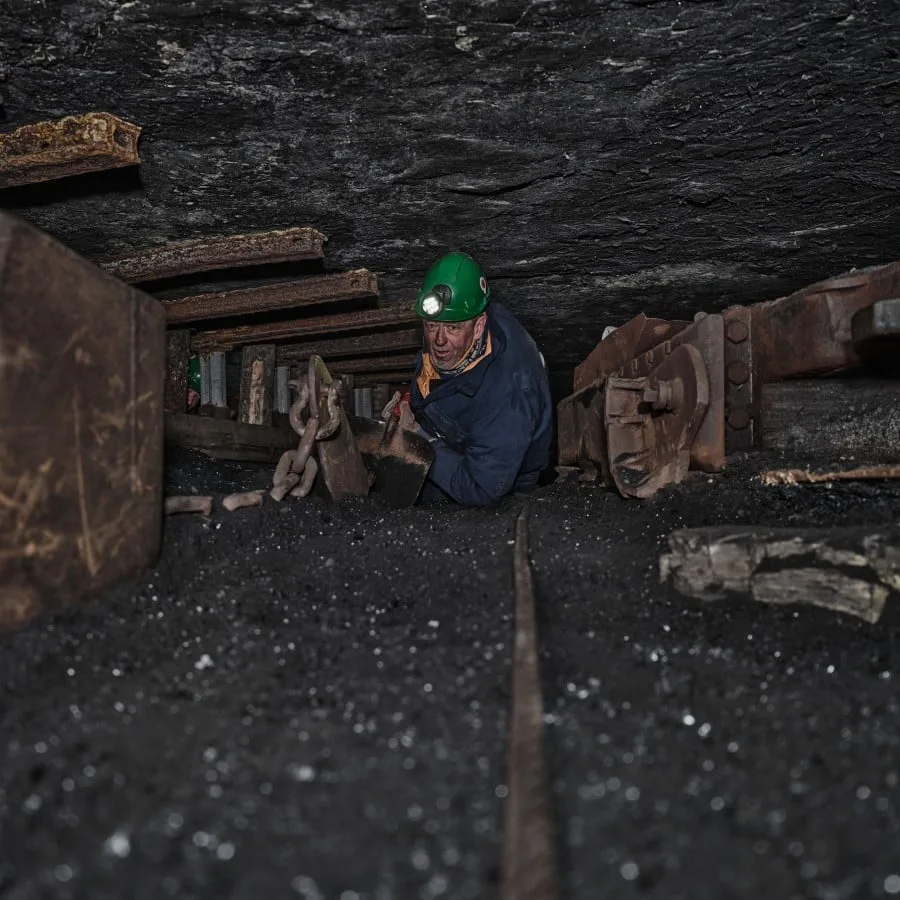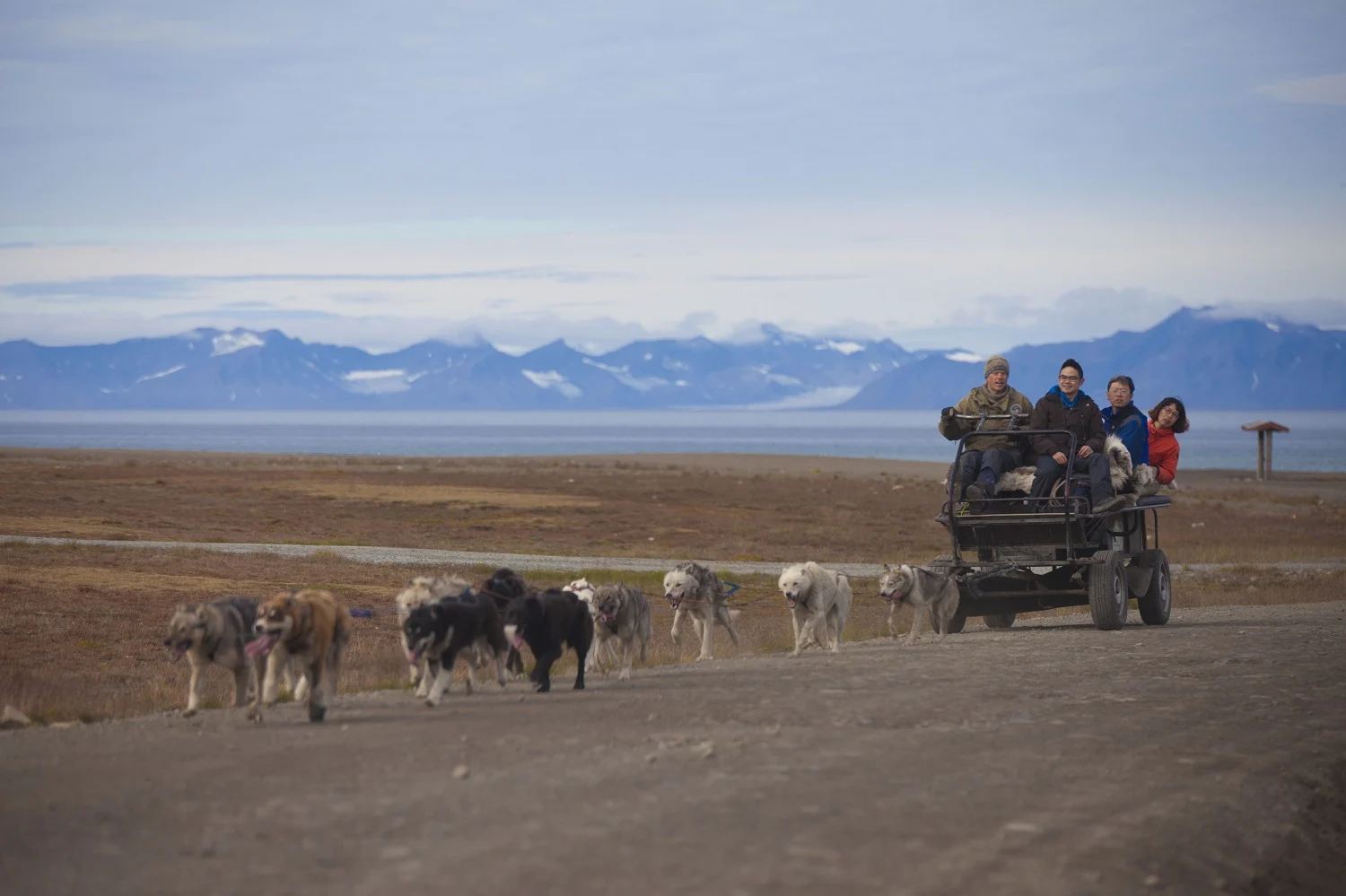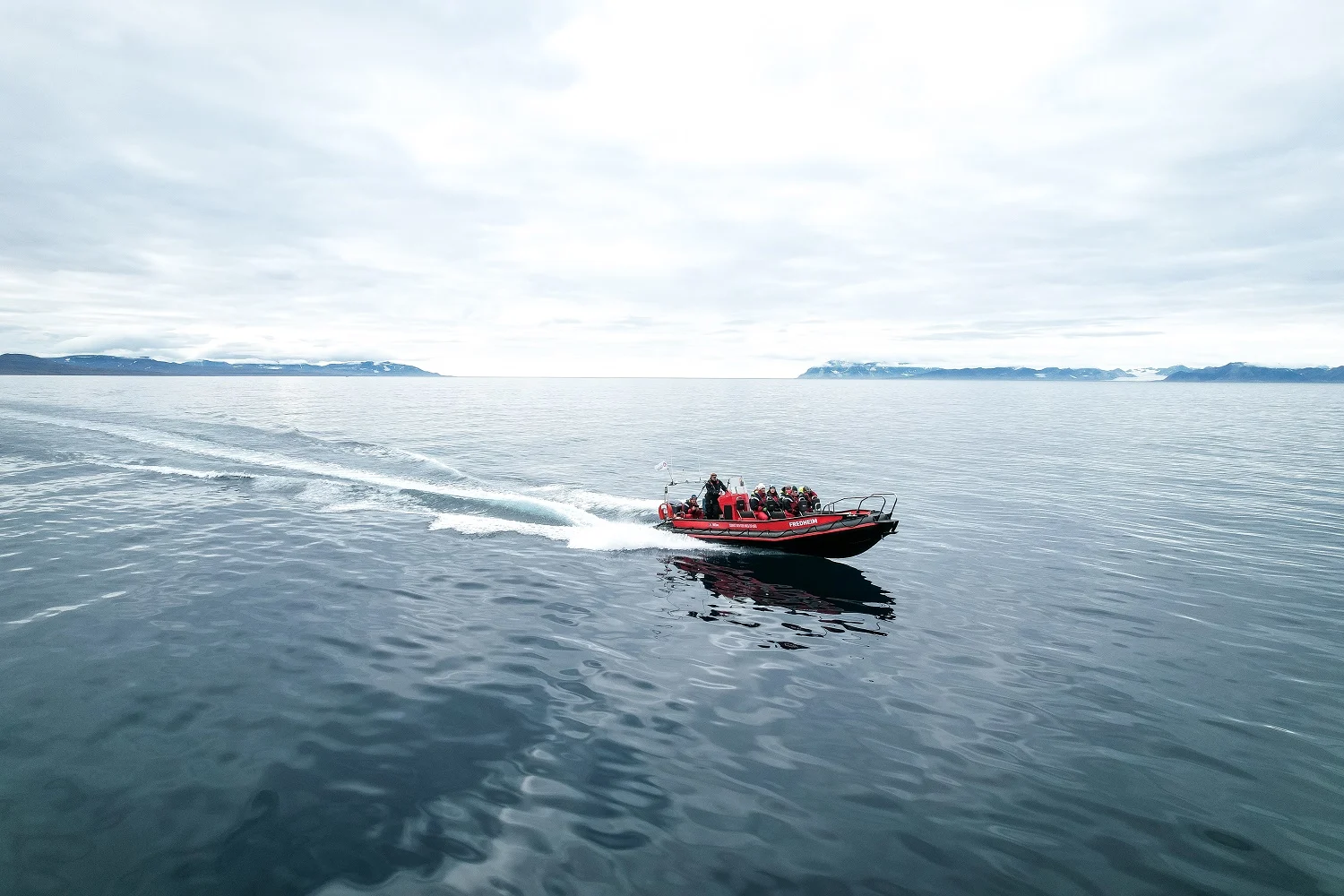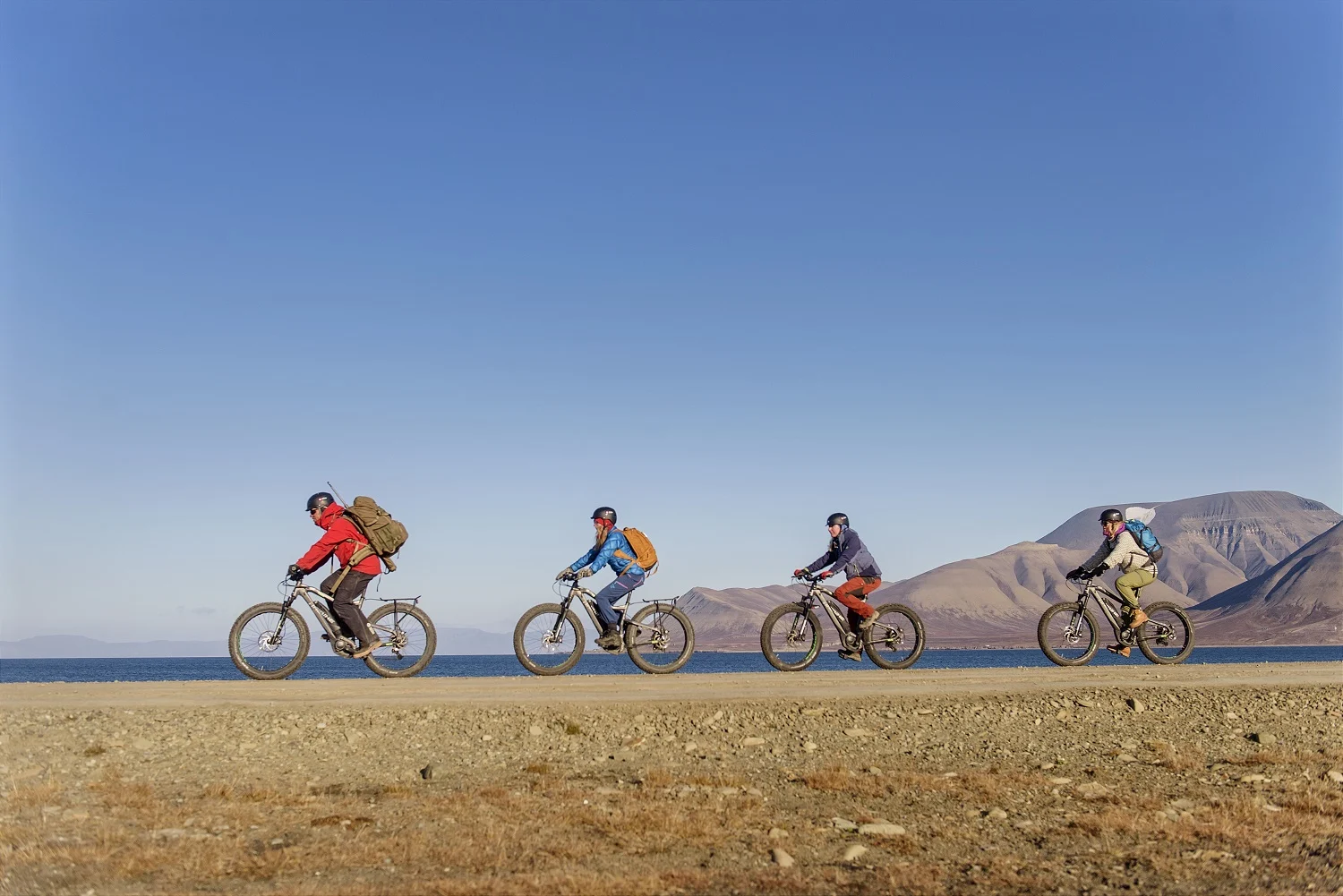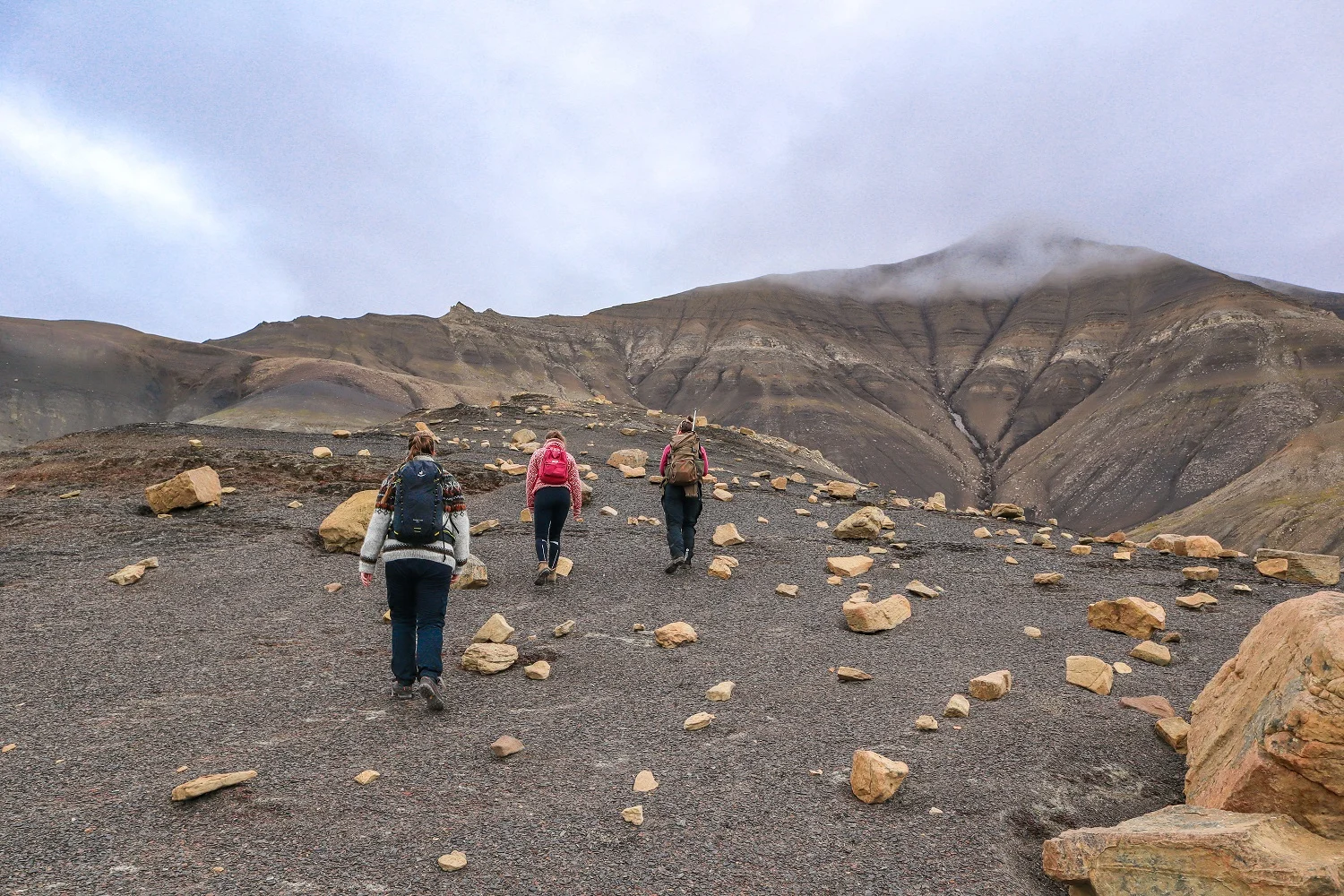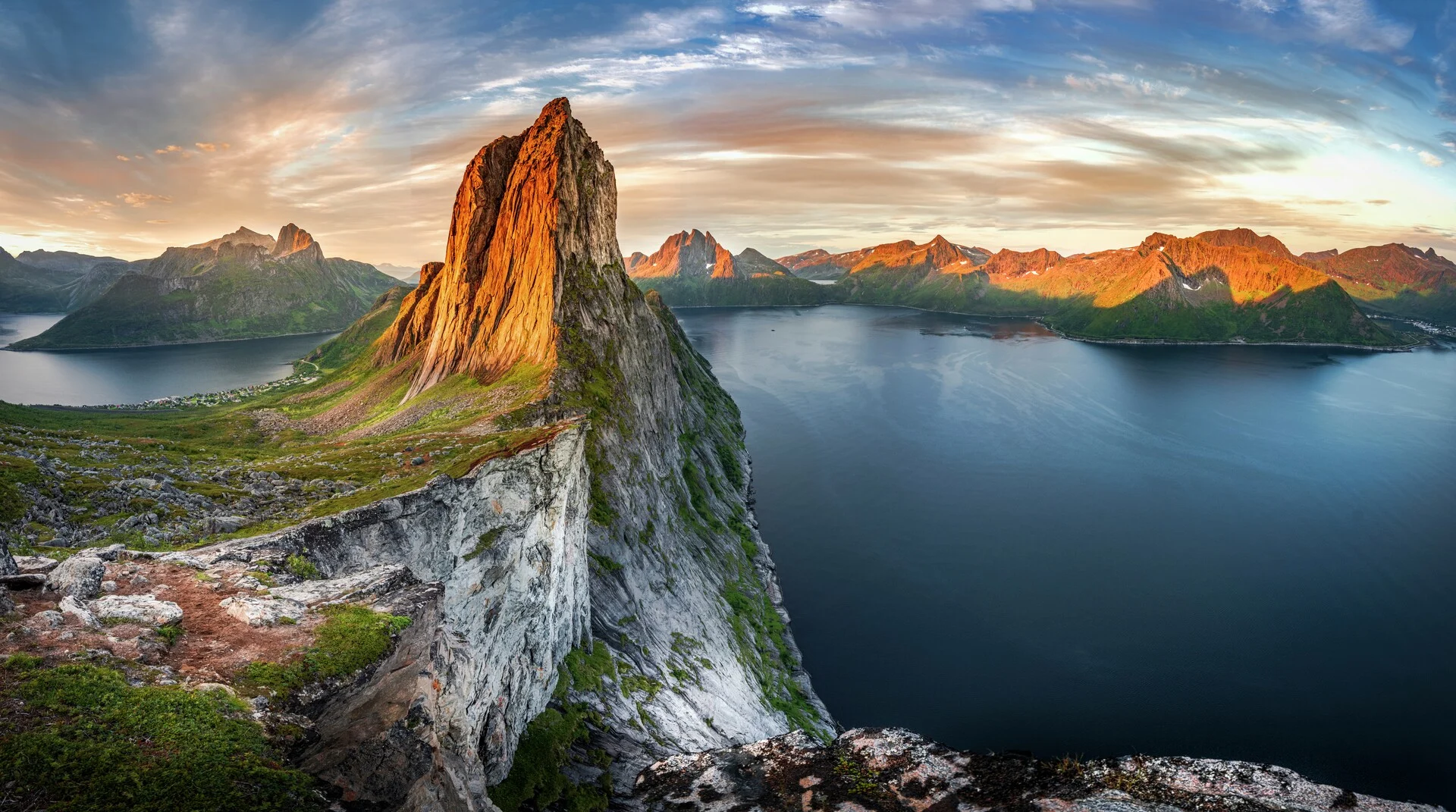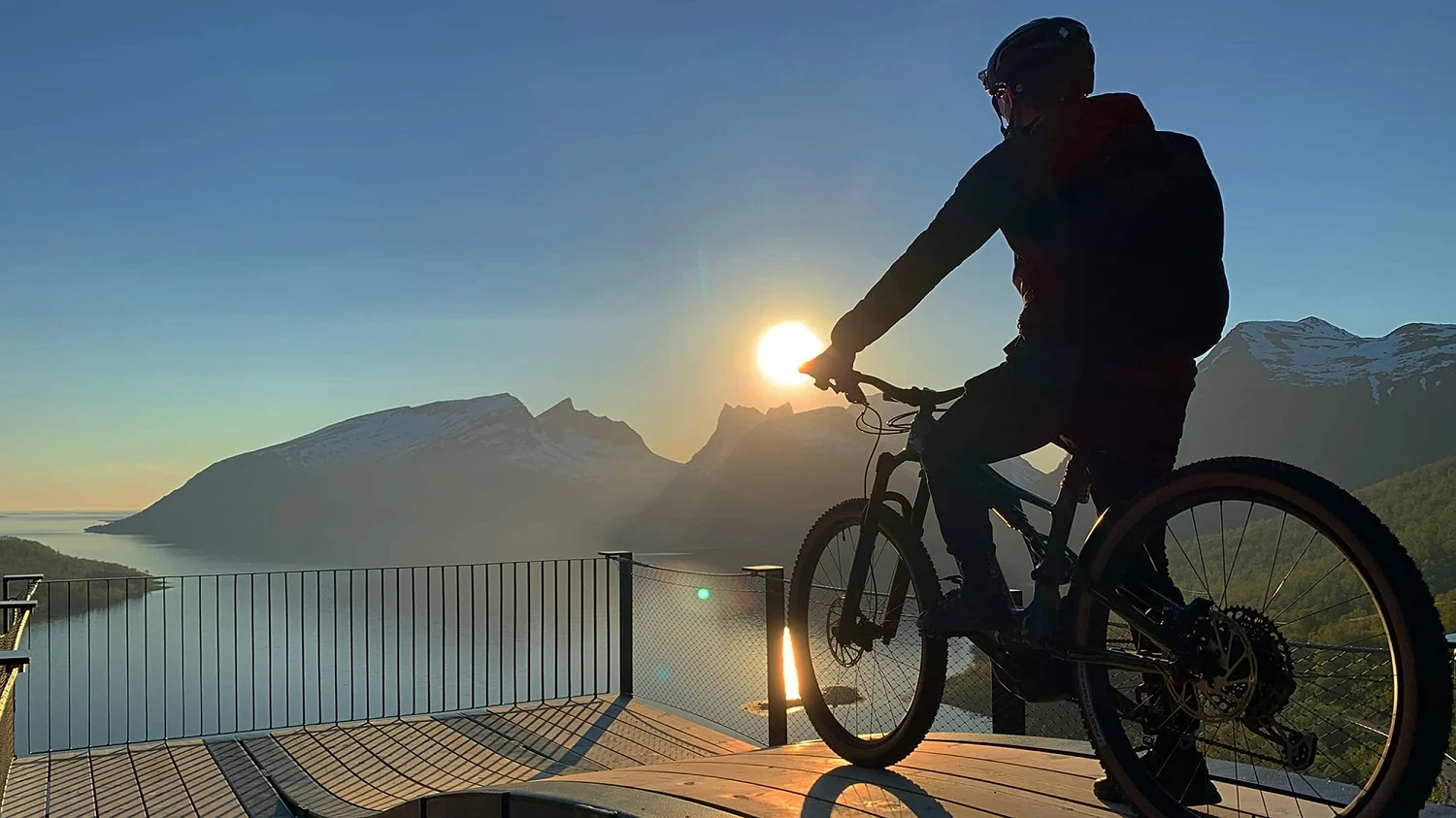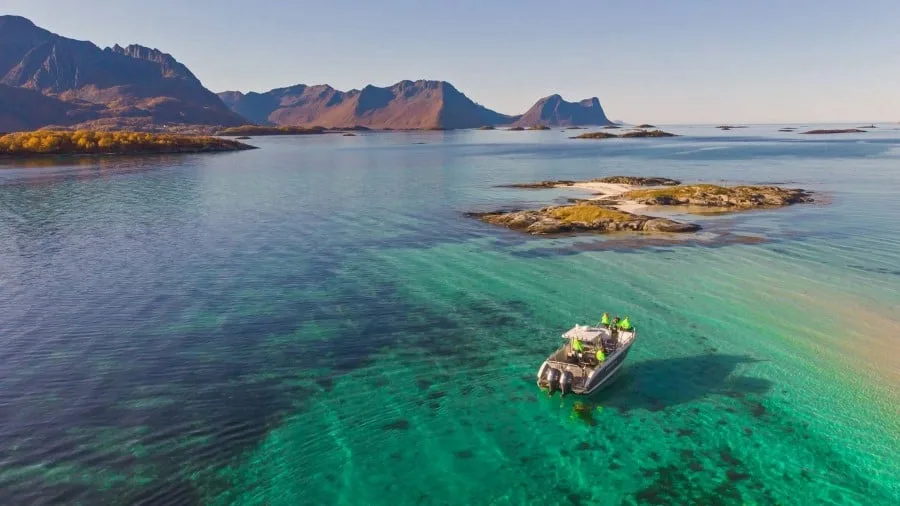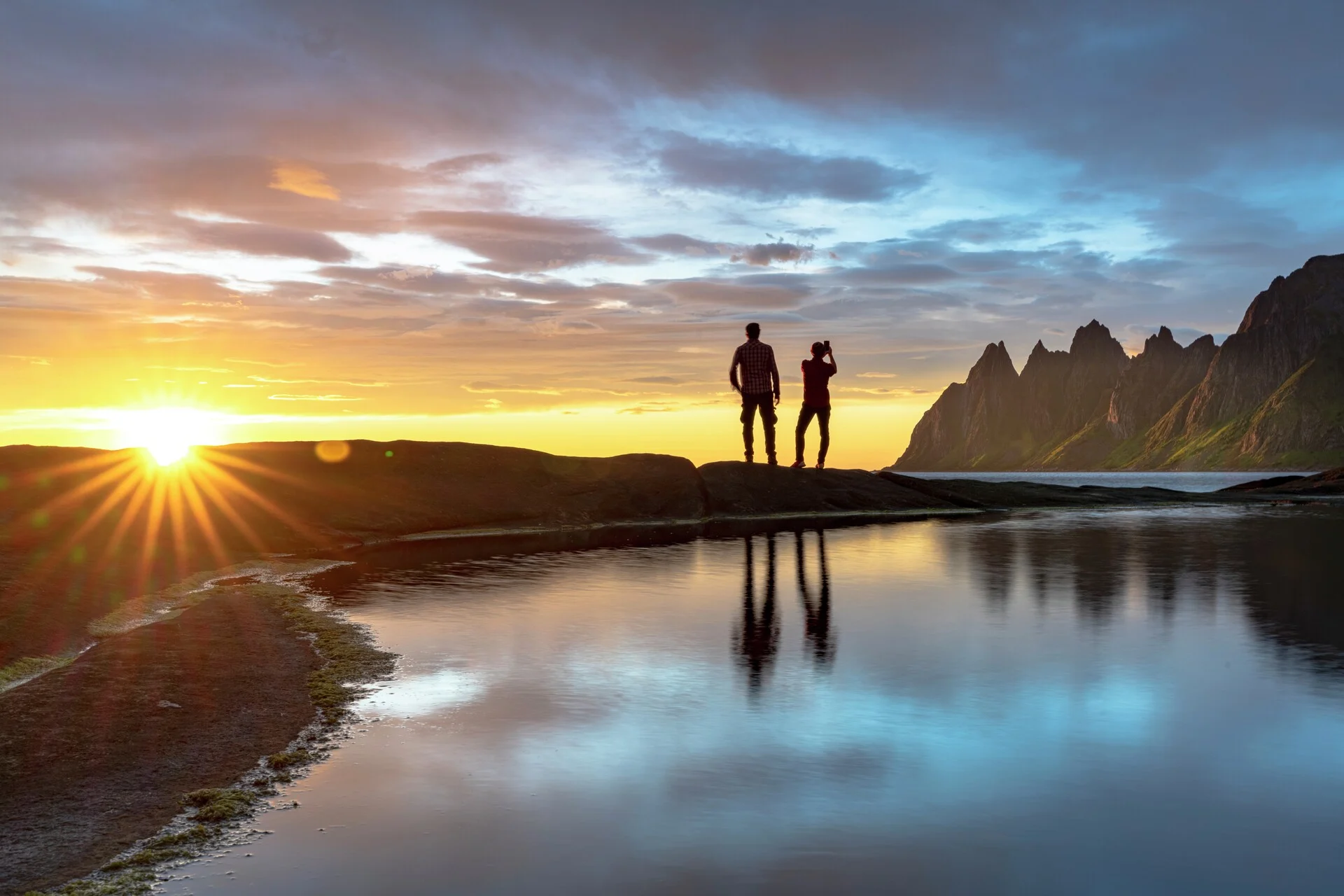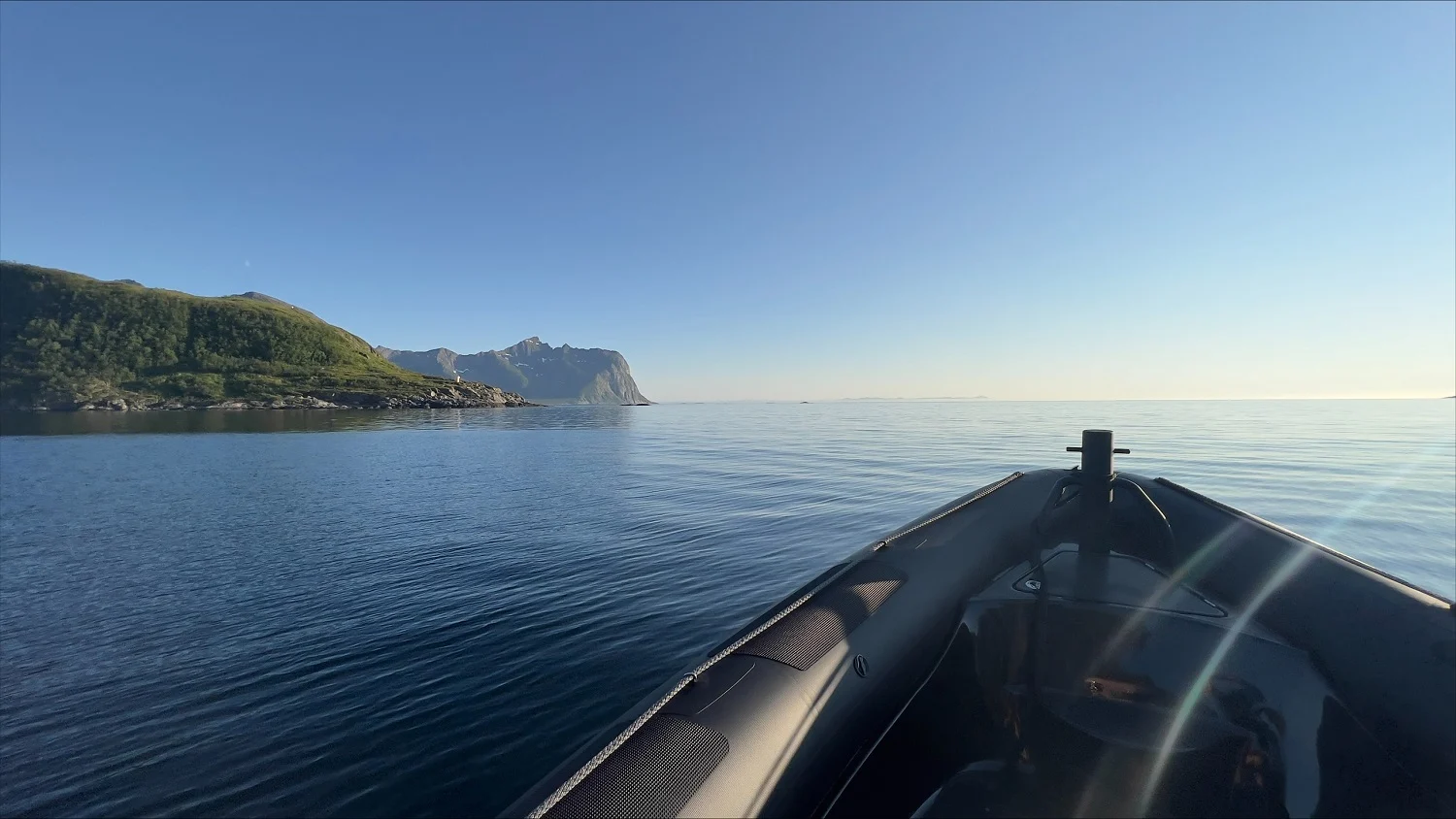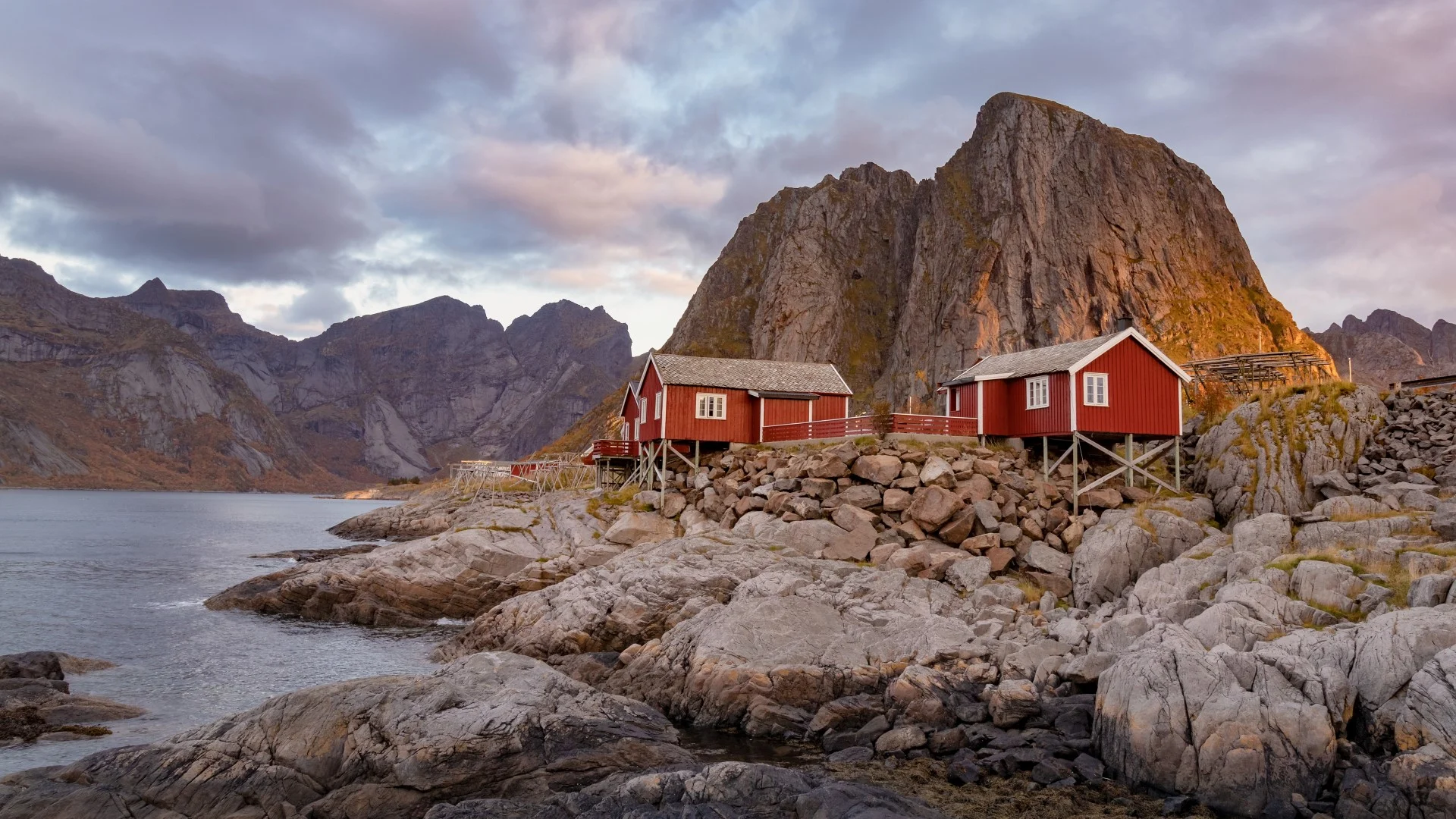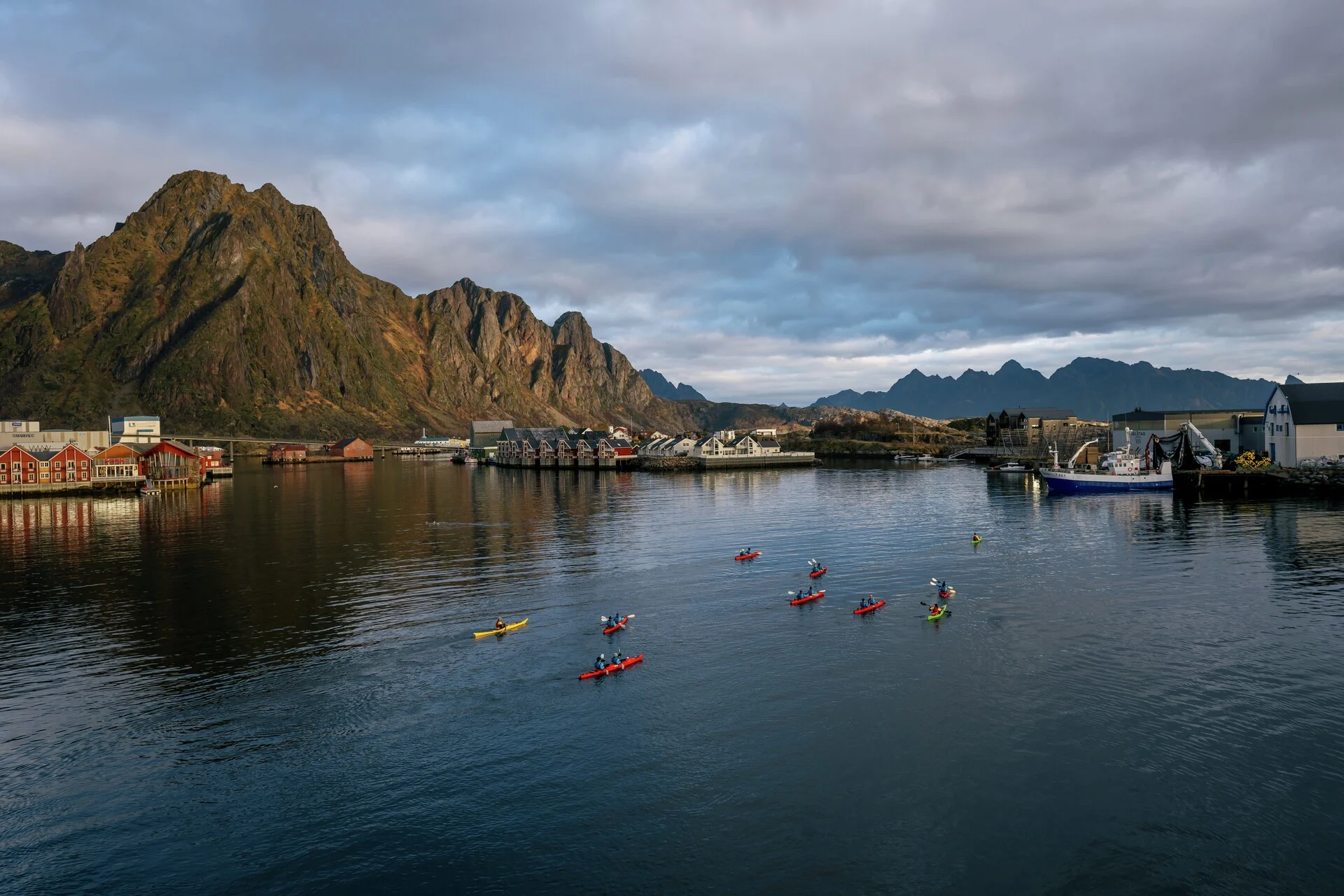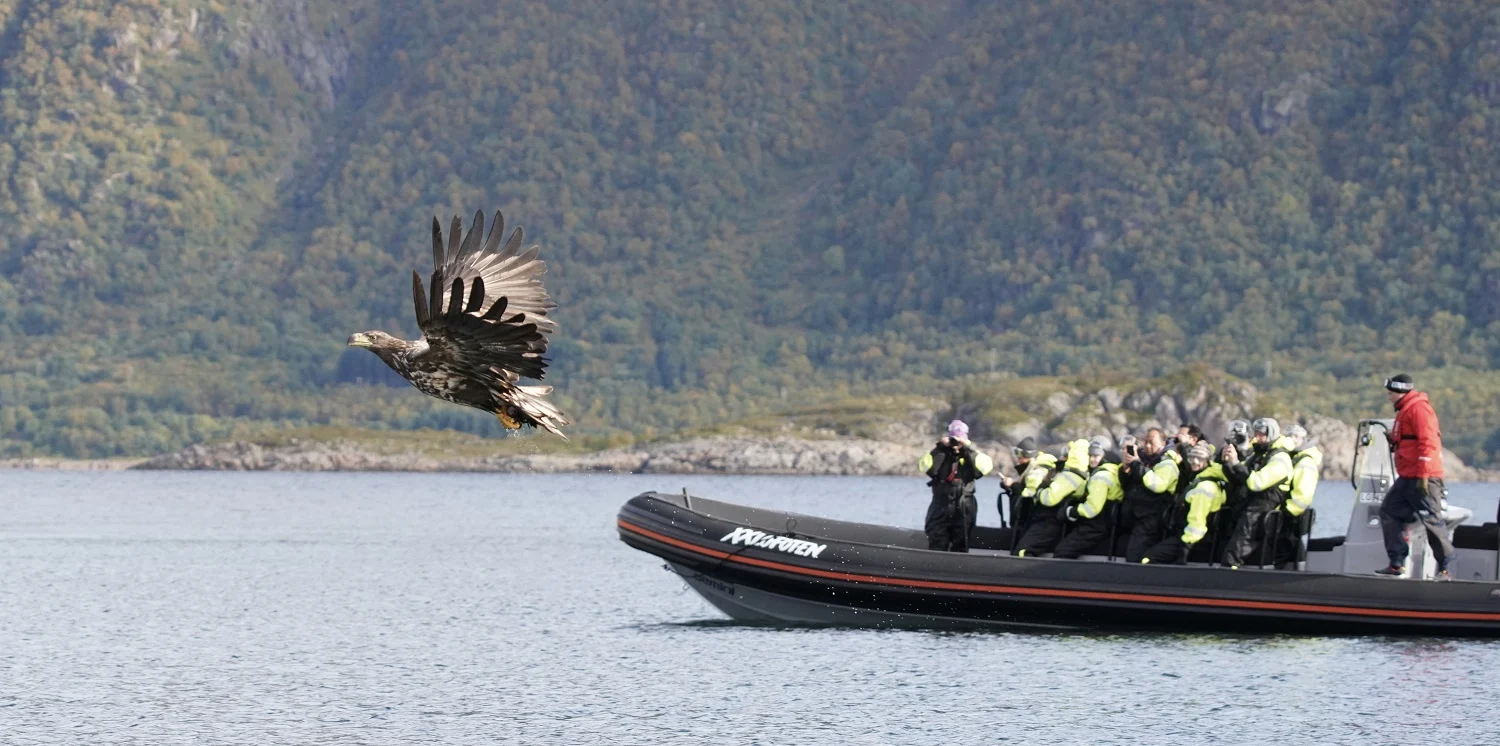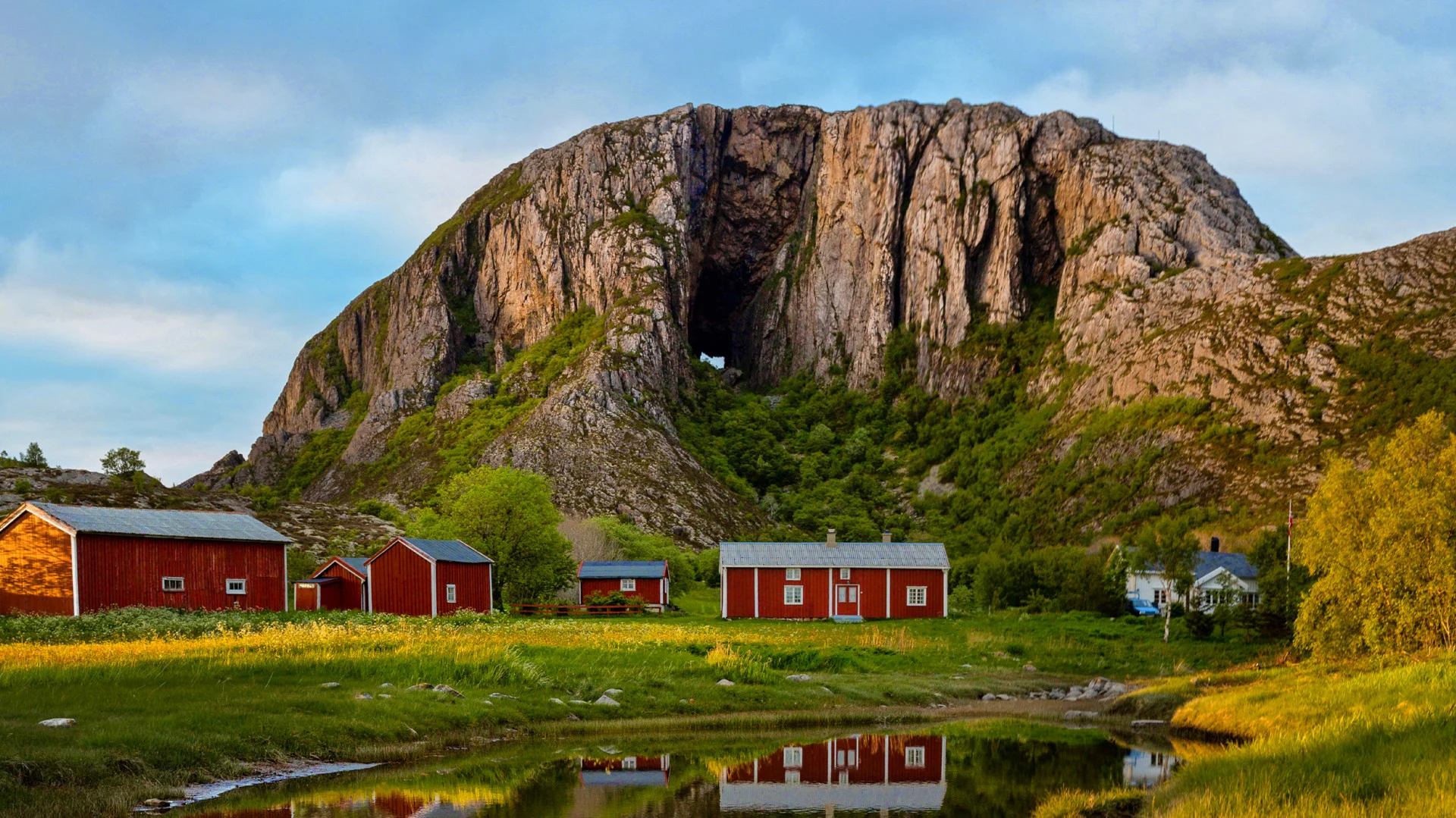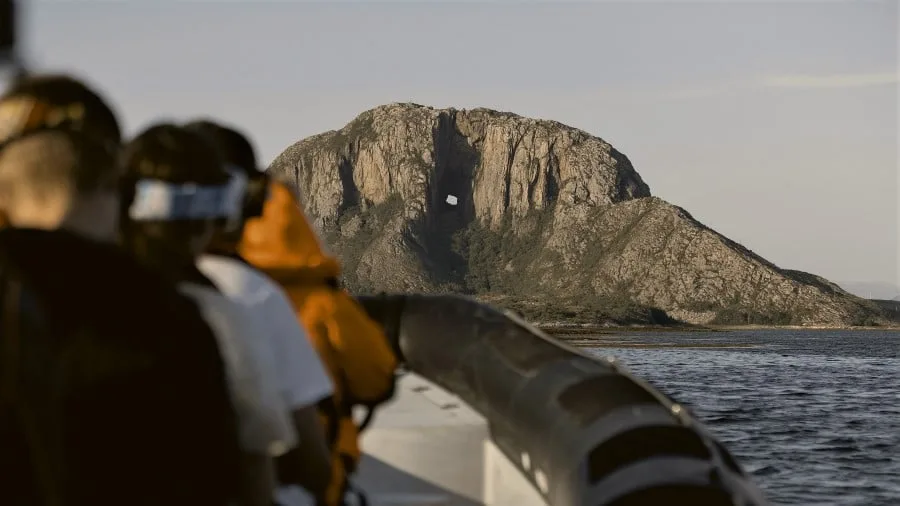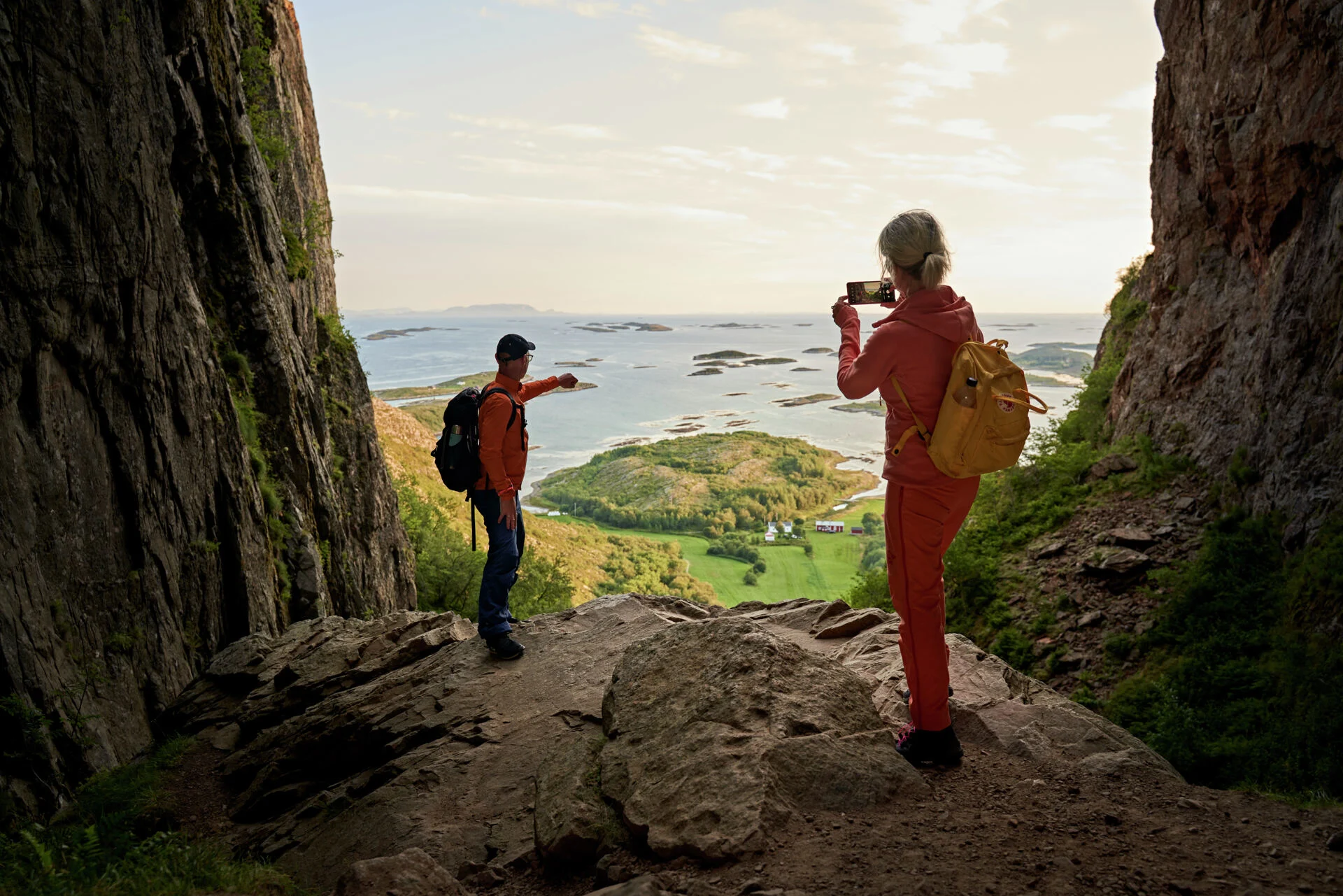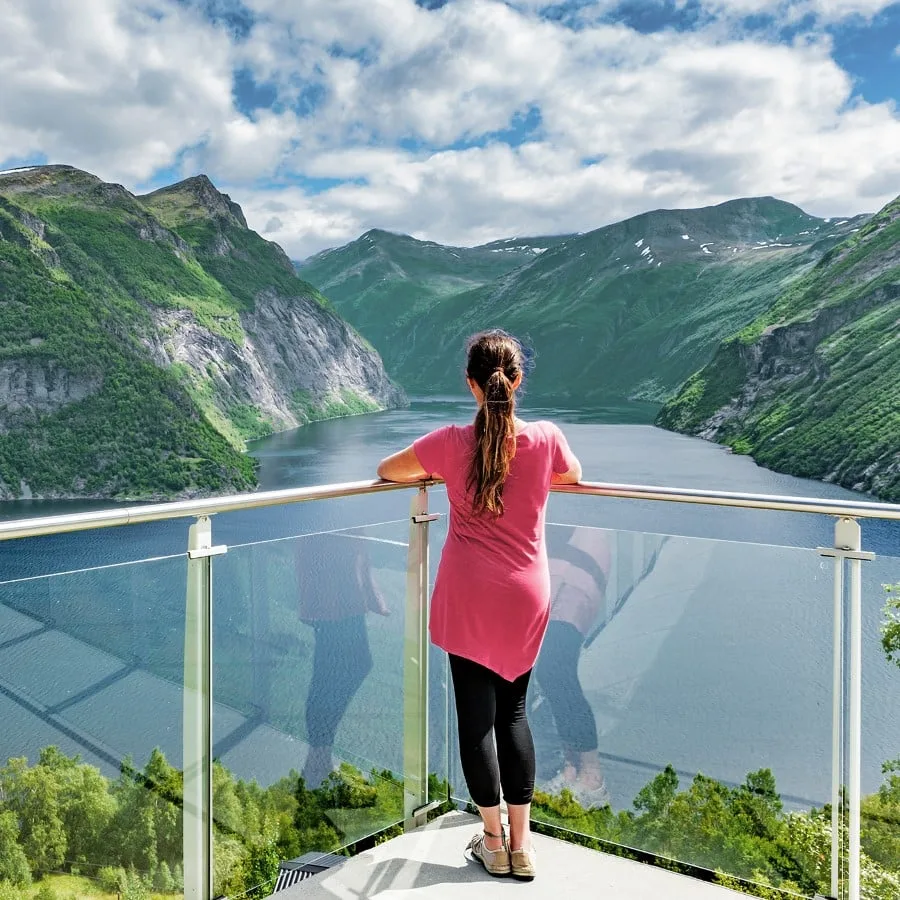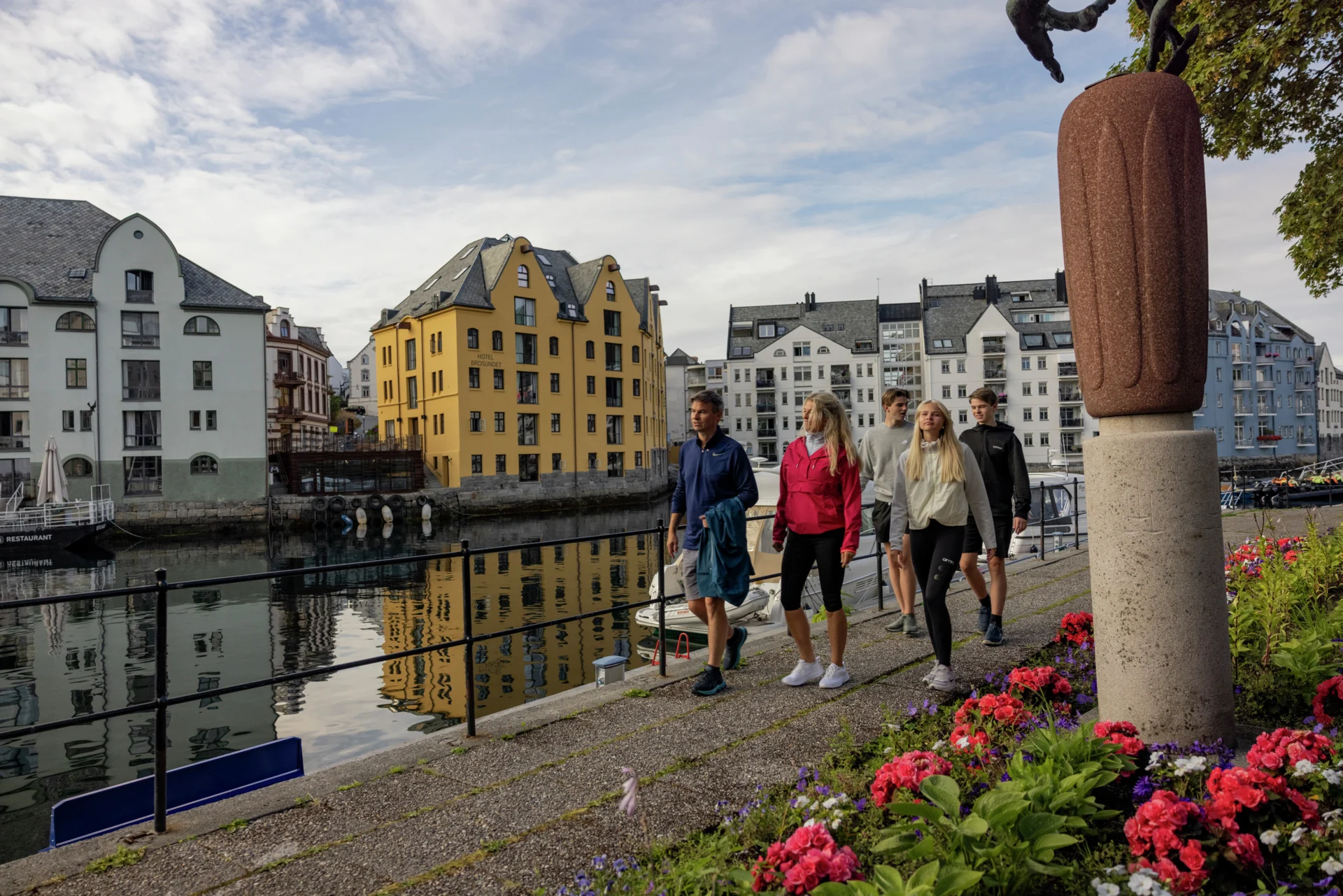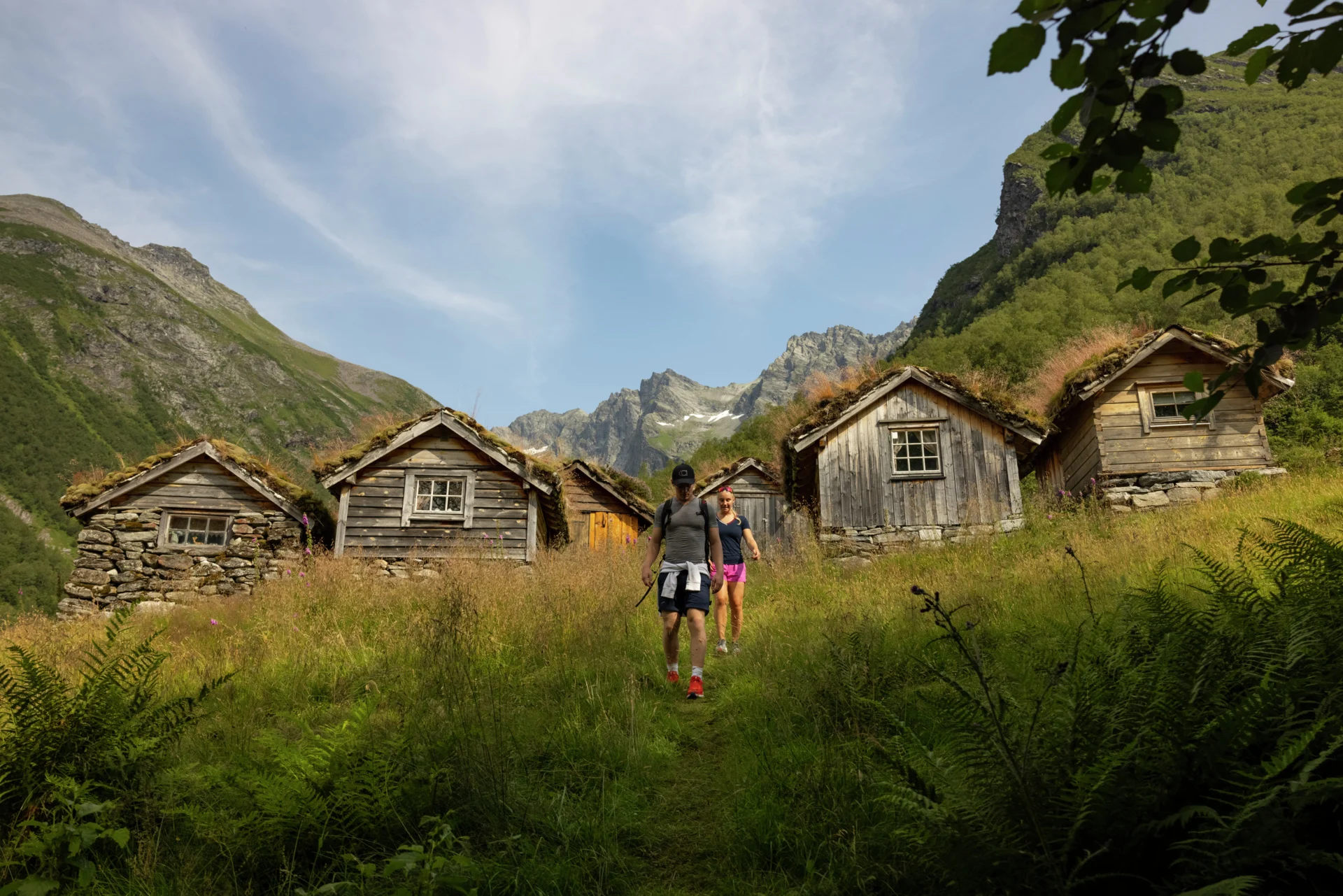Day 1
Sailing The Svalbard Line
Sailing The Svalbard Line
Bergen – gateway to the fjordsAfter waking up in your hotel, you might have a bit of time in the early morning to explore more of Bergen before a transfer meets you at your hotel to bring you to our comfortable guest lounge at the Bergen Terminal. Here, you can sample finger-food from our Norway’s Coastal Kitchen and talk to staff about securing a spot on any optional excursions still available.
Once we’ve welcomed you aboard, you’ll meet your ship’s Coastal Experience Team, who will be your hosts and guides to the Norwegian coastline and Svalbard. Get acquainted with your shipmates and take some time to get comfortable in your new home-away-from-home.
Enjoy your first meal aboard the ship, and watch the row of colourful buildings on the seafront get smaller behind you as you sail into the Norwegian Sea.
Day 2
Alpine village by the fjord
Alpine village by the fjord
ÅndalsnesLocated along Isfjord at the end of Romsdalsfjord, Åndalsnes is our first port of call. After docking in the morning in the town centre, you’ll get the chance to explore this picturesque coastal town, home to about 2,000 people.
From 1838 until 1964, the village of Åndalsnes served as the administrative centre of the old municipality of Grytten, during which time it had to be completely rebuilt after an attack during World War II. Now, Åndalsnes is a modern town with its own local newspaper, in one of Norway’s most stunning natural locations.
The literal highlights of Åndalsnes are the mountains that tower over the town. Experience the Norwegian concept of friluftsliv – a love of the outdoors – through a variety of activities, such as hiking to Rampestreken viewpoint.
For a more sedate way to take in the sights, sit back for a relaxing ride on the Romsdal Gondola or travel the winding Trollstigen Pass by bus. Whichever activities you choose, this day will bring you the best views of Isfjord and Romsdalsfjord, and the surrounding peaks.
Day 3
Norway’s oldest fishing community
Norway’s oldest fishing community
TrænaWe’ll sail along the coast of the Helgeland region in the morning. When you see islands rising out of the water in the distance, you’ll know we’re almost at our next destination.
Træna is an archipelago that sits at the edge of the Arctic Circle, 33 nautical miles northwest of the mainland. Made up of around 500 islands, islets and skerries, with only four inhabited year-round, Træna is a quiet municipality, with birdlife thriving on the mostly uninhabited isles.
Though small, this archipelago has a long history, with archaeological finds indicating that the islands have been inhabited since the Stone Age. Some of these ancient relics have been found in a cave on the island of Sanna, which is now used as a venue for an annual music festival.
Spend the afternoon in one of Norway’s oldest fishing communities. If weather permits, you might be able to enjoy such activities as hiking and biking, or even island hopping.
With a large population of Sea Eagles, birdwatching is another activity you won’t want to miss. For a truly authentic experience, step into the age-old shoes of a Norwegian fisherman, and cast a line under the summer sun.
When it’s time to leave in the evening, take some time to rest onboard and unwind. We’ll cross the Arctic Circle as we continue heading north, commemorating the moment with a little Norwegian ceremony.

Day 4
The Tip of Lofoten
The Tip of Lofoten
ReineToday, we explore the famed Lofoten Islands. Watch for the steep mountains rising from the sea as we approach from the south in the morning.
We dock in Reine, an important – and picture-perfect – fishing village since 1743. This is one of the most-photographed landscapes in all of Norway, where red-painted rorbuer cling to a string of islands beneath sharp mountain ranges reflected in the waters below.
Not far to the south of Reine, at the western tip of the Lofoten archipelago, you’ll find Å, one of the best-preserved traditional fishing villages in Norway. You can visit it on an optional excursion.
At the heart of this tiny village is the Norwegian Fishing Village Museum, which covers the importance and development of fishing in Lofoten over the last 250 years.
Day 5
Gateway to the Arctic
Gateway to the Arctic
Tromsø – gateway to the ArcticTromsø is Northern Norway’s urban Arctic hotspot, boasting impressive architecture, hip restaurants, and the world’s northernmost university. Rich in polar history, it makes for a natural stopping point before we go further north and into the High Arctic.
This modern city has a long legacy, with artefacts being found nearby that date back to the Ice Age. The city grew in importance after being declared a kjøpstad, or “market town” in 1794, despite only being home to 80 people. It became a centre of Arctic hunting in the mid-1800s, and by the end of the 19th century, Tromsø was an established Arctic trade centre.
We aim to dock here in the morning, giving you a whole day to explore this historic Arctic city and its surroundings. Take your pick from a number of optional excursions. Learn more about the culture and polar history of Tromsø on a city walk. Or go watch graceful seals at the Polaria centre, one of the world’s northernmost aquariums where you can see various species of Arctic marine life up close.
There may also be an option to visit the striking Arctic Cathedral which has an impressively large multi-coloured stained-glass window. Or towering over Tromsø is Storsteinen Mountain, accessible via Fjellheisen Cable Car for exceptionally beautiful views of the city, mountains, and fjords.

Day 6
At the top of Europe
At the top of Europe
Honningsvåg – gateway to the North CapeAround mid-morning, we arrive at Honningsvåg, the northernmost city in mainland Norway. Honningsvåg is a young city, having only been declared as such in 1996, and it remains one of Norway’s smallest cities today.
You have several optional excursions to pick from here. These could include king crab fishing, meeting an indigenous Sámi family, birdwatching, or a guided tour of what life is like at 71°N.
Honningsvåg is also the gateway to the North Cape, the famed “northernmost point of Europe”. The plateau stands 307 metres above the sea, and is just over 1,000 miles south of the geographical North Pole. Take a moment to gaze out across the sea from a top the soaring cliffs, watching the waves crash against the rocks below.
Standing proudly on top of one of the cliffs is an iconic globe monument which invites all visitors to take a quick selfie. Selfie sorted, you’ll also want to visit North Cape Hall, which has a variety of exhibits and a short film that tells of the cape’s history.
Sailing away from Honningsvåg, we’ll enjoy dramatic views of the plateau from the sea. The ship will head further into the Barents Sea, leaving mainland Norway’s coast far behind us.
Day 7
Between Norway and Svalbard
Between Norway and Svalbard
The southernmost island of the Svalbard archipelago, Bjørnøya sits just past the halfway point between mainland Norway and Spitsbergen. We’ll be viewing this inaccessible land from the ship in the afternoon, so think of this as the prologue to your Svalbard adventure.
Upon seeing the island, you might notice the lack of trees, and even bushes. Very little grows here, with the land partly being covered only by a layer of moss and lichen. Whatever does grow here is fertilised by the abundant birdlife that nests on the sea cliffs. Get your camera ready to capture Little Auks, Puffins, Black-legged Kittiwakes, and Northern Fulmars flying over dramatic cliff tops and steep slopes, alongside many other seabird species.
Contrary to its name, which means “Bear Island”, the only native mammals are Arctic foxes. The island was named after a polar bear was spotted swimming in the waters nearby, but this is an unlikely sight this far south.
Aboard the ship, you can learn about Bjørnøya’s history through polar history lectures. You might find out about the historic expeditions that led to its discovery, and the subsequent claims that various countries have made to the island. Discover the strategic importance of this unreachable sanctuary, and the role Bjørnøya played in World War II.
Sailing on from Bjørnøya, continue to make use of MS Trollfjord’s various onboard facilities to relax, such as the sauna or fitness room. There will also be a photography workshop today to get your camera eye and lens in focus to best capture the wildlife and wilderness awaiting us in Svalbard.
Day 8
At the edge of the world
At the edge of the world
LongyearbyenToday, we arrive at the Svalbard archipelago and make our way up to Spitsbergen, the largest of the three main islands. Magnificent brown and green mountains rise and ripple up from the High Arctic tundra while rivers of snow-melt trickle through the valley plains, glistening under the summer sun.
Take a moment to just be here, now, in Svalbard. You’re at a latitude more than 78°N and under 820 miles / 1,500 kilometres from the North Pole itself. The air of this Arctic desert is fresh and pure, and temperatures in summer average between zero and eight degrees Celsius thanks to a warm northern branch of the Gulf Stream.
We find Longyearbyen nestled on the banks of a sweeping, large fjord. It is the biggest settlement in Svalbard and pegged as the world’s northernmost settlement with a population greater than 1,000.
Home to some 2,000 inhabitants from across the world, it originally sprang up as a coal mining colony in 1906. Today, it is a hub for adventure travellers, as well as scientists and engineers attached to local research projects, like the famous Global Seed Vault.
Spend some time strolling around the town, admiring its collection of galleries, pubs, restaurants, brewery, and the notable North Pole Expedition Museum. You’ll also have optional excursions to pick from that bring you into the awe-inspiring landscapes surrounding Longyearbyen. Ever tried dog sledding without snow? This is your chance.
Day 9
Science on the Arctic frontier
Science on the Arctic frontier
Ny-ÅlesundAs we sail from Longyearbyen, you’ll want to be up early to enjoy impressive views of Kongsfjord, one of the largest fjords in the area. Its entrance is guarded by two colossal creaking glaciers that regularly deposit ice into the fjord.
This stretch is also a good place to look out for walrus basking on the shores and for many different species of migrating birds, including puffins, king eiders, pink-footed geese, and guillemots.
Arctic fox and Svalbard reindeer can sometimes be spotted on land while the white beluga whale has been known to surface in the waters here too. If we’re very lucky, we might even see a polar bear prowling the coast for bearded and ringed seals.
At the tip of Brøgger peninsula, on one of Kongsfjord’s shores, is Ny-Ålesund. Like Longyearbyen, it began as a coal mine but became host to scientific stations from the mid 20th century. During the summer, there are over a hundred researchers based in the town, representing 20 glaciology and climate institutes from more than 10 countries.
Wander around what is one of the northernmost settlements in the world, drop in at the local museum and souvenir shop, or send a far-flung postcard back to friends and family from the small post office.
You can also take a guided tour of the Amundsen monument, erected here in honour of the great Norwegian explorer’s record-breaking flight to reach the North Pole in 1926. Amundsen flew the airship Norge from Ny-Ålesund and landed in Alaska three days later, successfully doing so via the North Pole.
Day 10
Leaving Svalbard
Leaving Svalbard
Unfortunately, it’s time for us to say farewell to Svalbard and to Spitsbergen and sail south back to mainland Norway.
On board the ship, use the day to relax. If skies are clear, enjoy some summer sun out on deck and keep on the lookout for whales, dolphins, and porpoises. Or if it’s not too warm out, head to the sauna for a soothing steam.
For some fascinating insights into local history and wildlife, catch a lecture delivered by the Coastal Experience Team. They may also offer a photography workshop to help sharpen your eye to capture stunning shots in the days to come.
Enjoy the sumptuous food and drinks on board, courtesy of our Norway’s Coastal Kitchen concept that features the finest, most flavoursome, local Norwegian produce. As a treat, there might be tastings of regional specialities or demonstrations by our skilled onboard chefs in the show kitchen.
You can also curl up with a good book in the lounge or chat with new-found friends in the bar while reminiscing together about your favourite experiences of the voyage so far.

Day 11
Exploring ‘Little Norway’
Exploring ‘Little Norway’
SenjaAfter a day at sea, we arrive back to mainland Norway.
Our first stop of the day is Tromsø, to drop off any cargo from Svalbard and pick up cargo bound for ports to the south, before we continue south to Senja. The island is one of the country’s largest, and northern Norway’s fast-rising star destination, as you’d expect for a place ranked among CNN’s top ten most beautiful islands in the world.
Often proudly described by locals as a ‘mini Norway’, Senja has a concentration of diverse landscapes that mirror different parts of the Norwegian coast, from the sandy beaches, turquoise waters and lofty mountains of its northern coast to the rocky coastline and pine forests of southern Senja and Ånderdalen National Park. You'll find rolling hills and birch forests to the east.
Disembark in the charming fishing village of Torsken and explore by bus, e-bike, on foot, or take to the fjords on a wildlife safari on one of the optional excursions.

Day 12
Fall in love with Lofoten
Fall in love with Lofoten
Stokmarknes – the birthplace of Hurtigruten, Svolvær – at the heart of LofotenStart the day with a few hours in Stokmarknes, an historic town with a special place in our hearts. It’s the birthplace of Hurtigruten Norwegian Coastal Express.
It’s a fitting place for the Hurtigruten Museum, where you are immersed in the atmosphere of a different era on our retired 1956 ship, MS Finnmarken, proudly encased in glass on the waterfront.
After Stokmarknes, we’ll sail via Raftsundet and Trollfjord to Lofoten. The rest of the day is all about exploring this breathtaking archipelago. Hailed as one of the most spectacular areas in all of Norway, you’ll understand why as you see its jagged green cliffs rise dramatically out of the ocean, climbing high into the sky like giant teeth.
The beating heart of the archipelago is the town of Svolvær where your ship will be based. There are shops and restaurants to enjoy, and the hours can be spent exploring and getting to know the town yourself.
To experience the mountains, islands, and villages around Svolvær, choose from a variety of handpicked top Lofoten excursions. You can go fishing, kayaking, or sit back and enjoy the incredible scenery on foot or on a bus tour.
Day 13
Highlights of the Helgeland Coast
Highlights of the Helgeland Coast
Brønnøysund – coastal charm right in the middle of NorwayThe ship continues south and reaches the midpoint of the Norwegian coast. This is the Helgeland Coast, a well-known stretch full of distinctive mountains that have inspired many a charming myth and local folklore.
As we sail, look out for the Vega archipelago, a cluster of some 6,500 islands, skerries, and islets. There’s a UNESCO World Heritage Centre on the island of Gardsøy which showcases how highly prized eider down is harvested from the local eider ducks by providing little huts for them to build their nests in.
We will base the ship in the town of Brønnøysund which features a lovely marina and a Neo-Gothic stone church from 1870. Spend your time exploring the town or joining optional excursions such as kayaking, cycling, or a cruise by RIB.
Further along from Brønnøysund is the unique Torghatten Mountain. The first thing you’ll notice about Torghatten is the hole that pierces right through its centre. Legend states that the hole is the work of an arrow fired by a spurned troll at his would-be lover and that Torghatten Mountain itself is the fossilised hat of a Troll King who attempted to block the arrow.
At an easy pace, it takes about an hour to reach the hole in Torghatten on an optional excursion. The panoramic view of the trees and islands stretching out before you is well worth it.

Day 14
Secret of the Sunnmøre Alps
Secret of the Sunnmøre Alps
Ålesund, The HjørundfjordThe ship will make a brief stop in the town of Ålesund, known for its Art Nouveau architecture and picturesque position on a peninsula below Mount Aksla. If you’re joining the overland excursion to Hjørundfjord and Sæbo, this is where you disembark, or you can explore the town on foot.
Near to Ålesund, cutting through the peaks of the Sunnmøre Alps, some 1,700 metres high, is magnificent Hjørundfjord. Its picture-perfect position embedded in the Sunnmøre Alps means it is the area’s hidden gem and a secret from most other ships.
On the banks of one of Hjørundfjord’s branches is the idyllic village of Sæbø. Tender ashore here and join an optional bus tour or hike excursion to explore Sæbo’s charming streets, fjord and mountain scenery, nearby villages, and local culture. If you left MS Trollfjord to go on an excursion at Ålesund, this is also where you’ll rejoin the ship.
We are fast approaching the last day of our voyage. What better way to celebrate our Svalbard Line experience than a farewell dinner on our last night.
Day 15
Back where we began
Back where we began
Bergen – gateway to the fjordsWe arrive back in Bergen in the morning. It’s time to disembark the ship, but not before saying fond farewells to your fellow passengers and to the crew of MS Trollfjord who made your Svalbard Line journey such a comfortable one.
You’ve travelled as part of this historic, iconic voyage to pieces of paradise along the Norwegian coast you won’t soon forget. If you’ve engaged in optional excursions, will you have photos to share of you kayaking, hiking, fishing, cycling in some of the most beautiful scenery ever seen?
We know you’ll take fond memories of the North Cape, Helgeland, Lofoten, Senja, Hjørundfjord, crossing the Arctic Circle, Tromsø, Bjørnøya, Longyearbyen, and Ny-Ålesund home with you to make your friends and family green with envy.
This has been The Svalbard Line. We hope to see you back here on the Norwegian coast with us soon.
